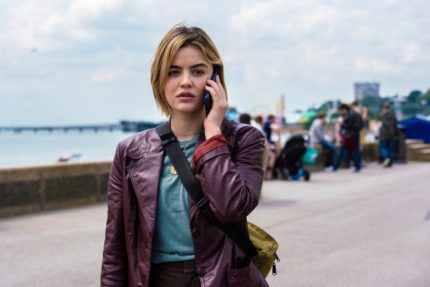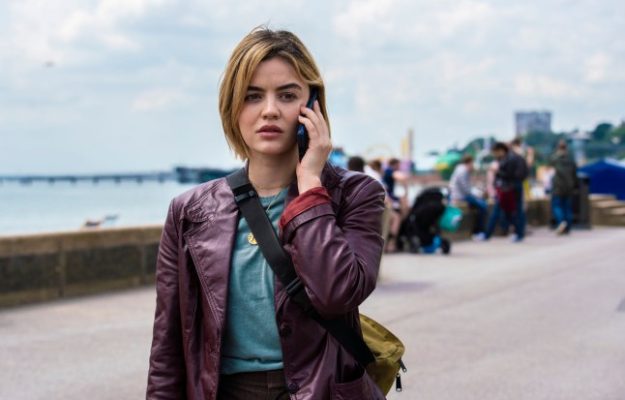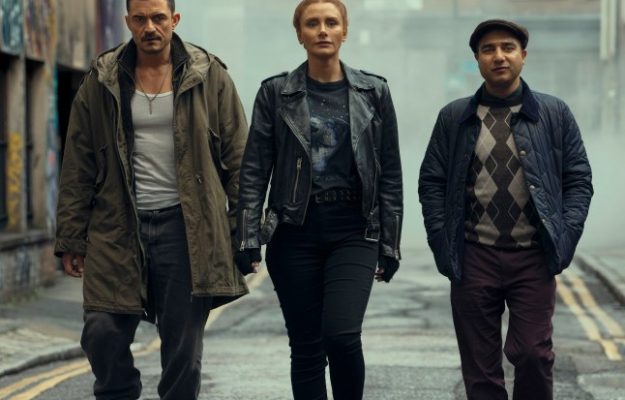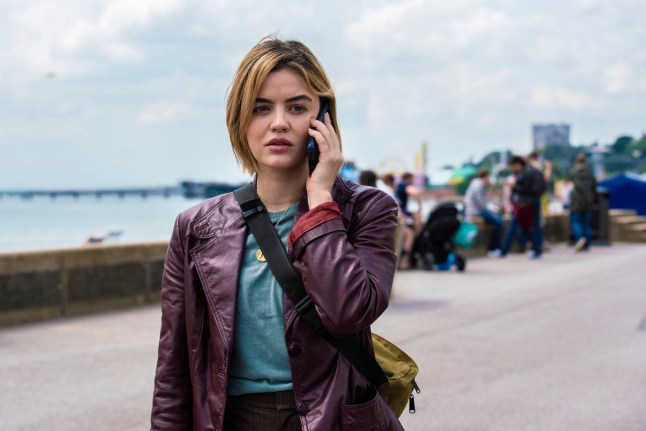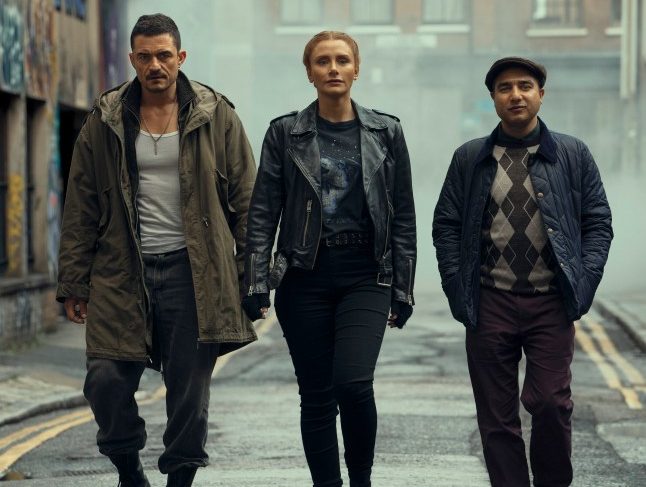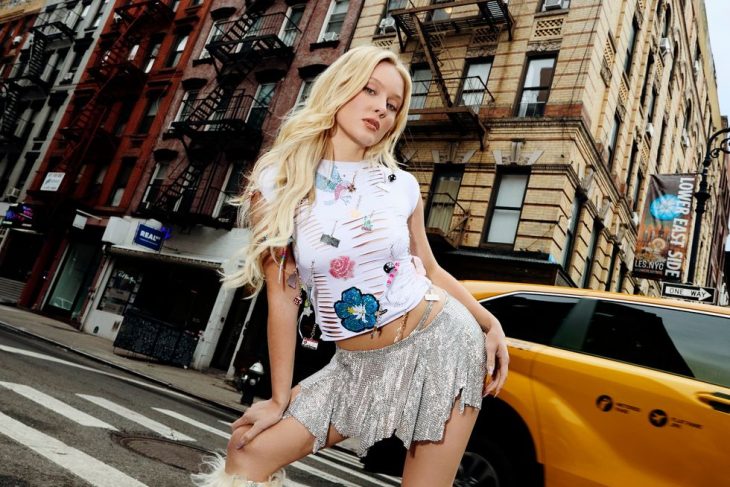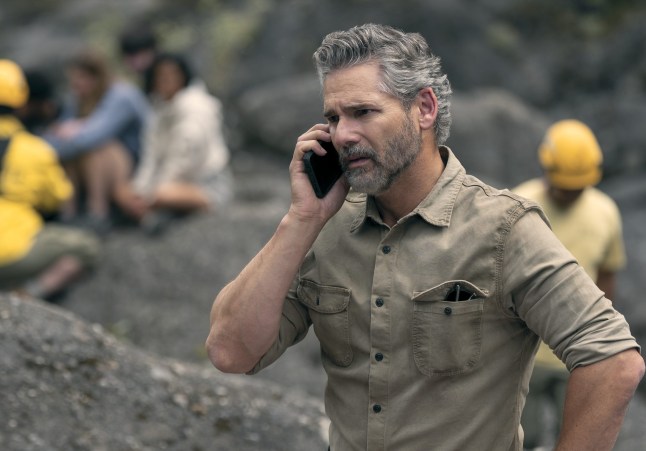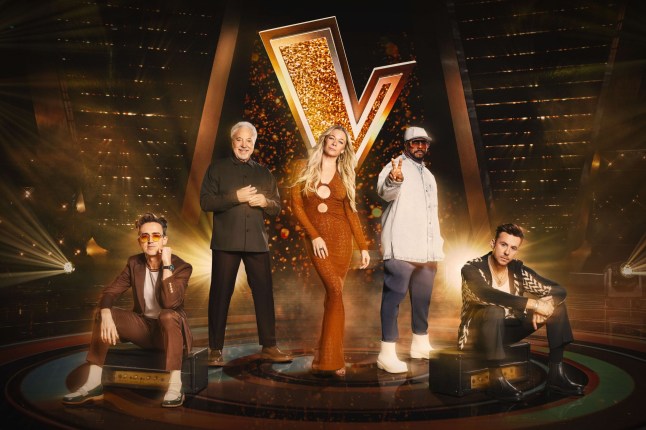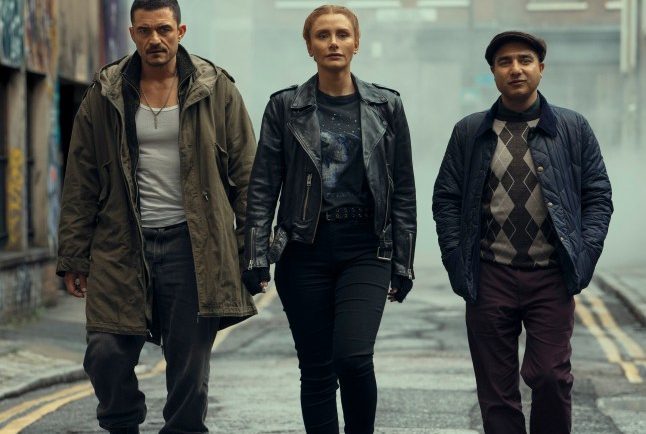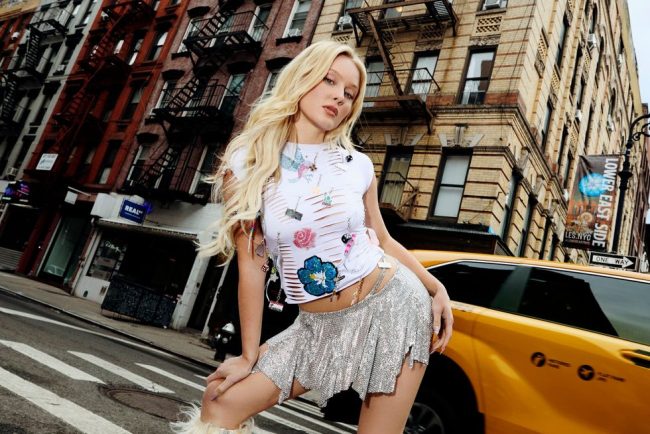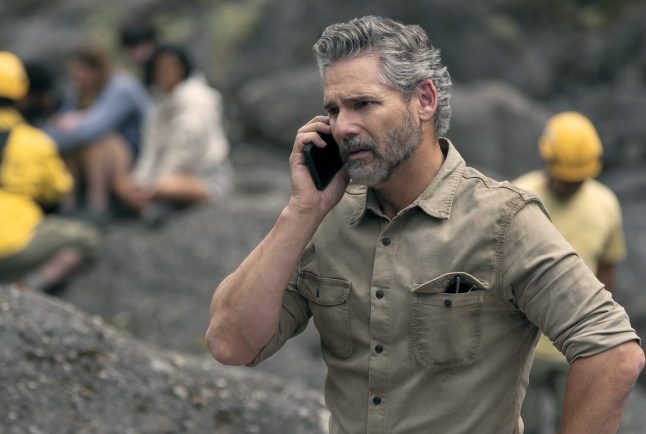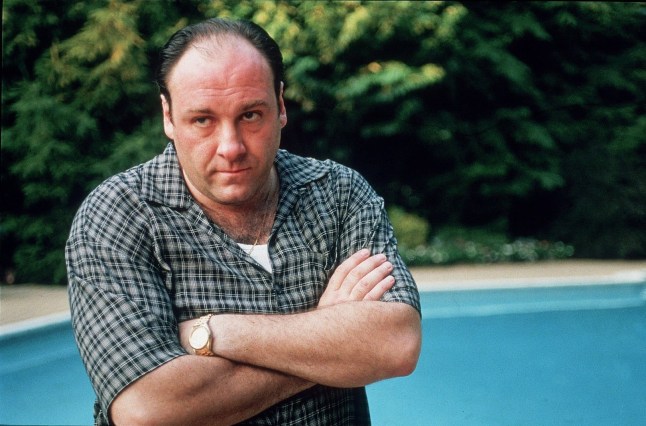
James Gandolfini’s blunt response to being ‘fined $250,000 a day’ on The Sopranos
James Gandolfini led the way on the Sopranos for nearly a decade (Picture: Getty) The Sopranos bosses would fine James Gandolfini $250,000 a day when he was would skip filming on the iconic series, a new book has revealed. The late actor, who died in […]
TV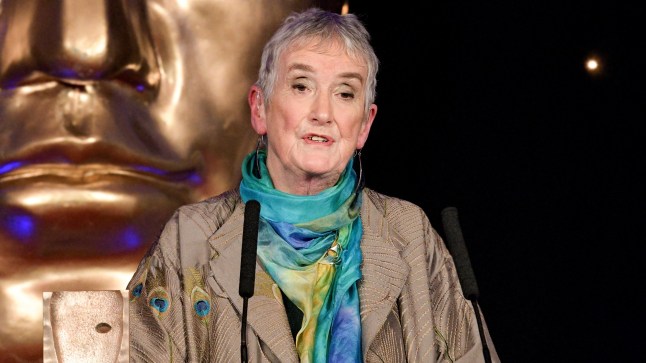
Paddy Higson – ‘mother of Scottish film’ – dies aged 83
Paddy Higson has died following a cancer diagnosis (Picture: Scott Garfitt/BAFTA/REX/Shutters) Paddy Higson, who many consider to be the ‘mother of Scottish film,’ has died at the age of 83 following a cancer diagnosis. She was known for her trailblazing work in Scottish cinema, mainly […]
Film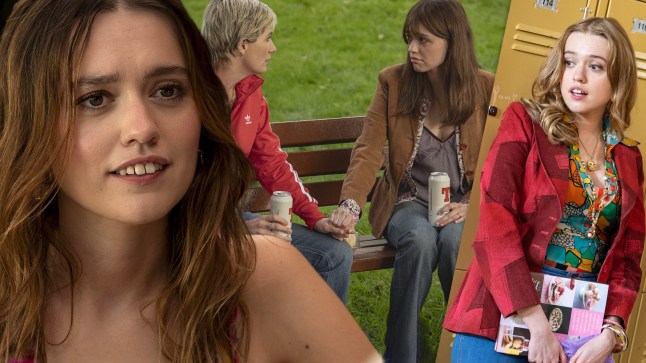
5 of Aimee Lou Wood’s best roles after urging fans to ‘talk about her work’
We need to stop talking about Aimee Lou Wood’s teeth and concentrate on her performances instead (Picture: Netflix/Home Box Office, Inc. All rights) Aimee Lou Wood voiced what everyone’s thought when she branded a recent Saturday Night Live parody of her appearance in The White Lotus as ‘mean […]
TV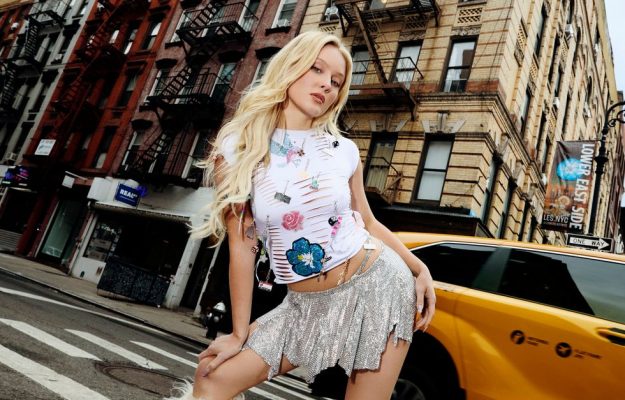
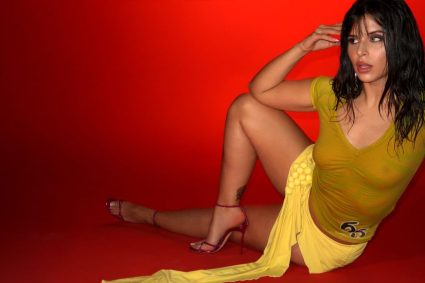
Nathy Peluso Gives Us Nostalgic 'Erotika'
From the moment she steps onto the stage at London’s Roundhouse, Nathy Peluso has the crowd in the palm of her hands as she effortlessly commands the stage with her infectious energy and flawless vocals. As a performer, the Latin superstar is an all-encompassing force […]
Music
From the moment she steps onto the stage at London’s Roundhouse, Nathy Peluso has the crowd in the palm of her hands as she effortlessly commands the stage with her infectious energy and flawless vocals. As a performer, the Latin superstar is an all-encompassing force of nature that radiates confidence and supreme talent.
As the dust settles from a memorable evening, a soft-spoken and relaxed Peluso talks over Zoom from the waiting lounge of Madrid Airport as she prepares to fly to Miami for the US leg of her GRASA Tour. The dates are in support of her sophomore album by the same name, which took Peluso’s career to the next level. Raw and authentic, when it was released in May of 2024, it received wide-spread critical-acclaim, winning her three Latin Grammys, including Best Rap/Hip Hop Song with “APRENDER A AMAR.”
Today, she kicks off her US tour at Miami’s The Fillmore and shares her latest single, “Erotika” with an accompanying video — a track inspired by the early 1990s salsa erotica scene in New York City, further showcasing Peluso’s ability to bridge the gap between traditional Latin music and new wave with electrifying results.
Your London show was incredible. What was that experience like?
Thank you! It was so good. It was one of those shows where I didn’t want to leave the stage. I was having so much fun with the public and everything was magic. It was an incredible experience.
What can fans expect from your upcoming US tour?
They can expect to feel so much freedom. [My shows] are a space where I communicate power and catharsis. It’s so important that when people come to my show, they are not the same when they go home. They learned something, they discovered something and felt it. For me, music has this power and it’s so important for me to pay attention to that. I always try to give all that I have to make such an experience for my fans because they trust me. It’s a very fun and emotional concert and very attractive to see. You can sing, dance, kiss and everything.
It must feel so empowering on stage because you have complete control of the audience and you almost become one during the show?
When you are communicating and the people are taking it and giving you energy, it’s such an important moment for an artist because when you are in the studio and shooting and composing, you are with a little crew or alone. When you are on stage, something very powerful happens because you are exchanging energy. That’s the moment you realize why you are doing all of that shit because it’s to share. If you don’t share it then it’s like it’s not real. The shows are important for me as an artist to realize what I am doing in this world.
I loved GRASA. Did you feel like you were bridging the gap between traditional Latin music and new wave?
Yes. I am always looking to show people what I love and amplify it. It’s an honor for me. Folklore is the most important thing to understand and to investigate like Bolero, Salsa, Merengue and Bachata. I go crazy for it, it’s like my medicine. For me, it’s natural. I want to play Bolero because I love it and I listen to it every day of my life. I also start my day listening to Salsa. It’s natural, I listen to Salsa, so I’m making Salsa. If I can share with people how I feel listening to Salsa then I want them to feel that way too. I make Salsa and Bolero and it’s so romantic. There is a mystic thing inside our music that really lifts me up.
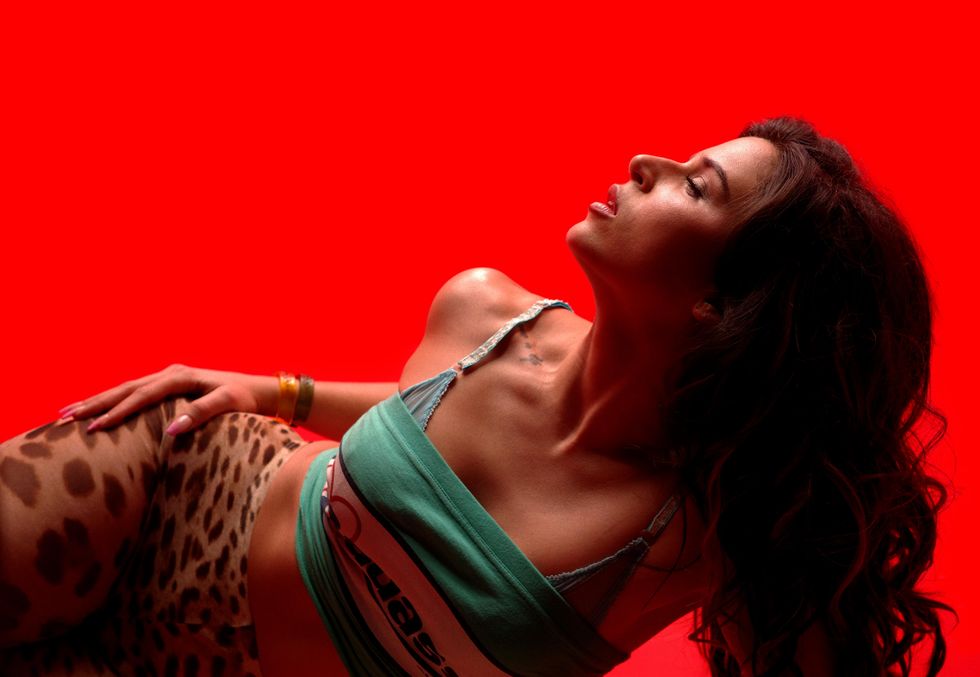
I love the new single, “Erotika.” Is this a sign of where your music is heading with this Salsa vibe?
I’ve always loved Salsa. I’m crazy for Salsa. It’s my real relationship in music, I always go back to it. I’m always looking to tell stories with Salsa because it’s such a good space to tell stories and develop characters.
No matter where you are in the world, listening to Salsa must transport you back home?
That’s right, that’s the feeling! When I am around the world, I play Salsa and I feel like I’m in a good place. It is like a ritual. It’s my medicine. When I am feeling bad I put on Ray Barretto, Willie Colón or Frankie Ruiz and I start to feel like something good is going to happen.
After the success of GRASA some people might feel the pressure to live up to expectations for the next album. But for you, it must give you more confidence and freedom as fans love the authenticity you bring with your music?
It’s an honor and a privilege that I can do whatever I feel like. Real fans are always trusting and listening and supporting, even if they don’t understand something because I am going crazy. They have patience and wait for me.
I’m so grateful because I can do whatever I want. I feel free with music to go with what my intuitions are saying. People are trusting and they come to the show and sing the songs. They want me to be like that. They don’t want me to do what I’m supposed to and industry shit, they want me to be authentic.
Does it feel like Latin artists have more space to take creative risks now? We have seen the success of GRASA but also the latest Bad Bunny album — Latin artists can get success by being authentic more than ever before.
For me, the real success is authenticity. If you’re not authentic, then maybe it’ll work short-term, but if you want something to live forever, then you better be authentic and real because you have to deal with it. I prefer to be real and do what I feel, that’s the real success to have the opportunity to listen to how I feel and communicate that. Artists are responsible for sharing that realness to the world and create conversations with people, even if they don’t like it. Even if it doesn’t work, it’s still successful because you’re learning and doing what you feel.
You’ve been doing music professionally for over a decade and it has been a surreal journey. Do you ever have a chance to take a step back and see how far you’ve come in that time with sold-out tours and Latin Grammy success?
It feels so natural because I work a lot. I’m working non-stop to be able to be a better artist, to be a better person, to be a better singer, to be a better dancer, to be a better daughter and everything. So, when I see the fruits [of my labor], I feel proud and grateful, it empowers me to get even better. It feels like a blessing for me to be here and respected. All the Grammys, sold-out tours and success are a blessing to me but I never take it for granted. The people are always supporting me. I can’t wait for more, I think I have a lot to learn, to win and to grow. I’m in the present and I’m having fun.
Photography Courtesy of Nathy Peluso
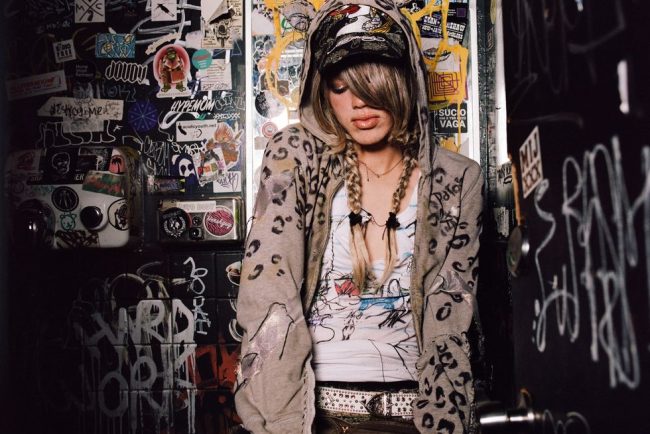
Cortisa Star, From Viral to IRL Success
Furries, video games, Chief Keef songs, Baltimore raves… welcome to the world of Cortisa Star. PAPER’s favorite viral rapper came out swinging last year on her breakthrough single “Fun” before following it up with equally distinct tunes like “What You Want” and “Misidentify,” each heavy […]
Music
Furries, video games, Chief Keef songs, Baltimore raves… welcome to the world of Cortisa Star.
PAPER’s favorite viral rapper came out swinging last year on her breakthrough single “Fun” before following it up with equally distinct tunes like “What You Want” and “Misidentify,” each heavy on the glitched-out sounds of the post-hyperpop generation. Now-legendary producer umru worked on her debut EP, and Star plays it coy when asked about other collaborators on the project: “It’s a really new sound, especially because the studio area pulled that new sound out of me. It was a space where I could scream as loud as I could.”
At times, the hyperpop trappings and blown-out vocals recall emo’s heyday, now looped around and filtered through the Chromebook production style of Cortisa Star. Can fans expect screaming on the new EP? “Yes! Really dramatic vocals.”
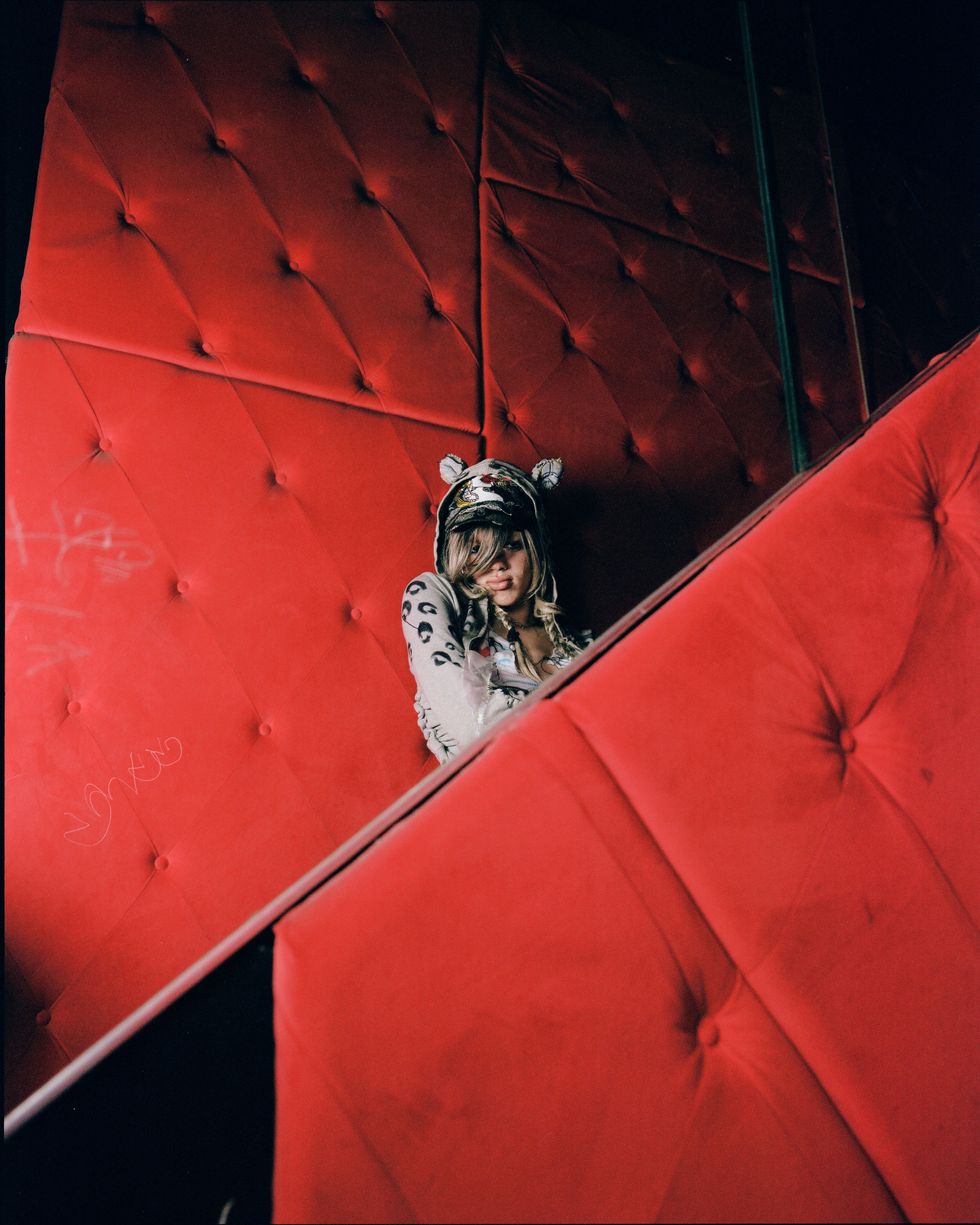
Often, Zoom Star is fast, witty, and full of quick asides and anecdotes that keep me on my toes. Her lyrics bleed through the conversation, as does her irreverence toward the spotlight she’s found herself thrust into.
Star cuts it straight when asked about the influence of places like Delaware, her home, on her sound. For her, it’s much as it is for many finding their way from the fringes, she says. “It’s hard, because I was mainly raised in Delaware,” she tells PAPER. “And there was no music scene whatsoever… I’ve always been tapped into the internet and posting. I’m not too social when it comes to real people IRL.” With that came the influence of video games and cartoons, “because online was my escape from my small little town. This year was my first time going to a bunch of cities. It was my access to the world.”
Read on for Star’s full chat with PAPER, along with backstage photos from her recent Brooklyn show.
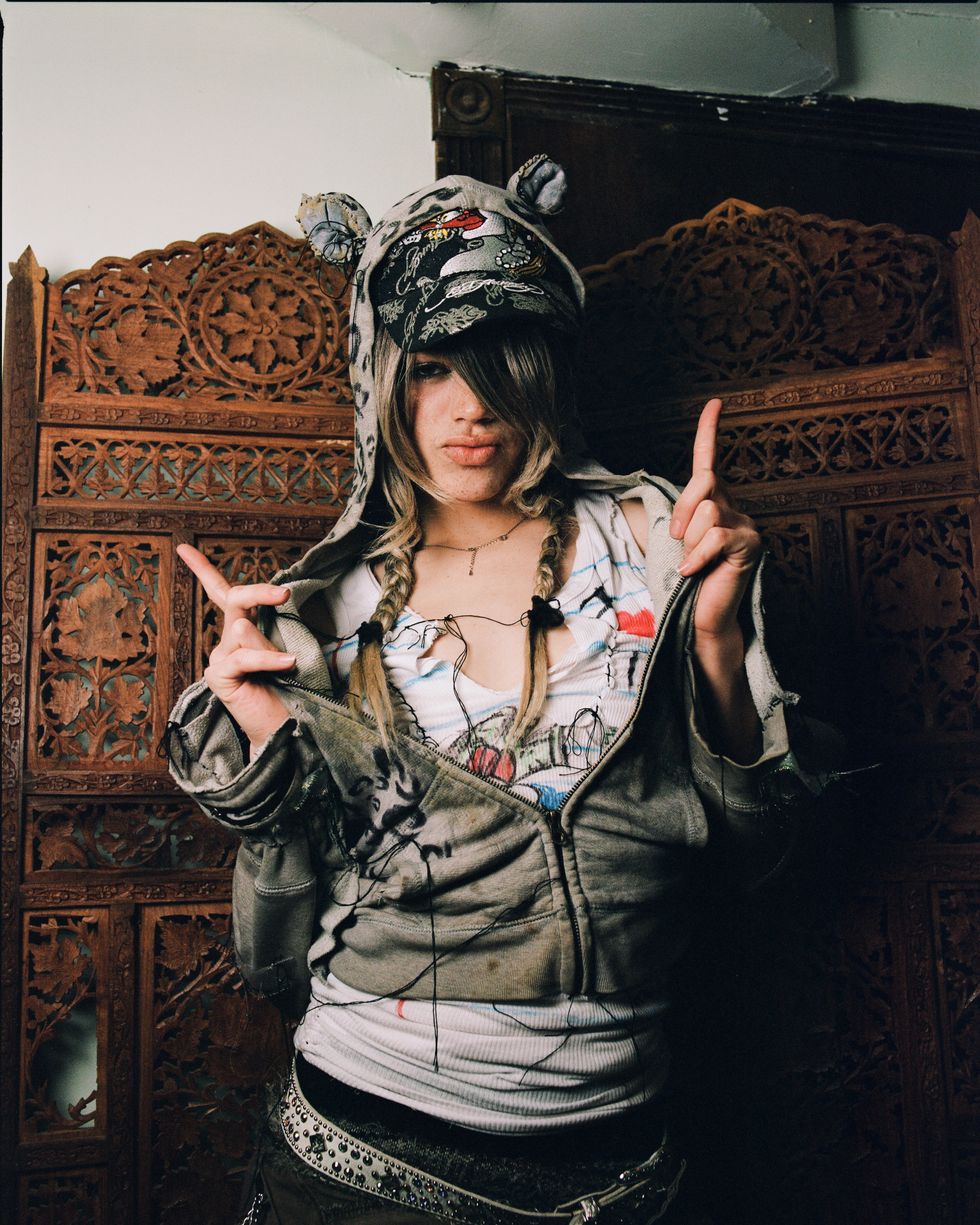
How are you feeling about your upcoming EP?
I’m so hyped. It’s already recorded, though, so I’m hyped for it to come out.
What can you tell me about it — anyone you worked with, features on it?
There is a feature on it, I’m really excited. It’s a really new sound, especially because the studio area pulled that new sound out of me. It was a space where I could scream as loud as I could.
Can we expect screaming on the EP?
Yes! It’s really dramatic vocals.
How has your life changed since you tweeted: “Straight people found out about me, and they are losing their damn minds, OMG?”
Honestly? My life, other than work and traveling a whole bunch, obviously meeting a bunch of other people… my life hasn’t changed that much. I usually do the same thing. I take my dog out and hang out with my twin sister.
What’s the dog’s name?
Zuko, like from Avatar.
You have a lot of cartoon references, you said that you were inspired by an episode of Adventure Time, with beatboxing.
I’ve always been playing video games, cartoons, I always loved anime. I never got outside too much as a kid.
If you could pick a video game character — like Ivy, from Soulcalibur — Well maybe not Soulcalibur, I’m an old lady — but who would it be?
Probably Pearl from Splatoon 2.
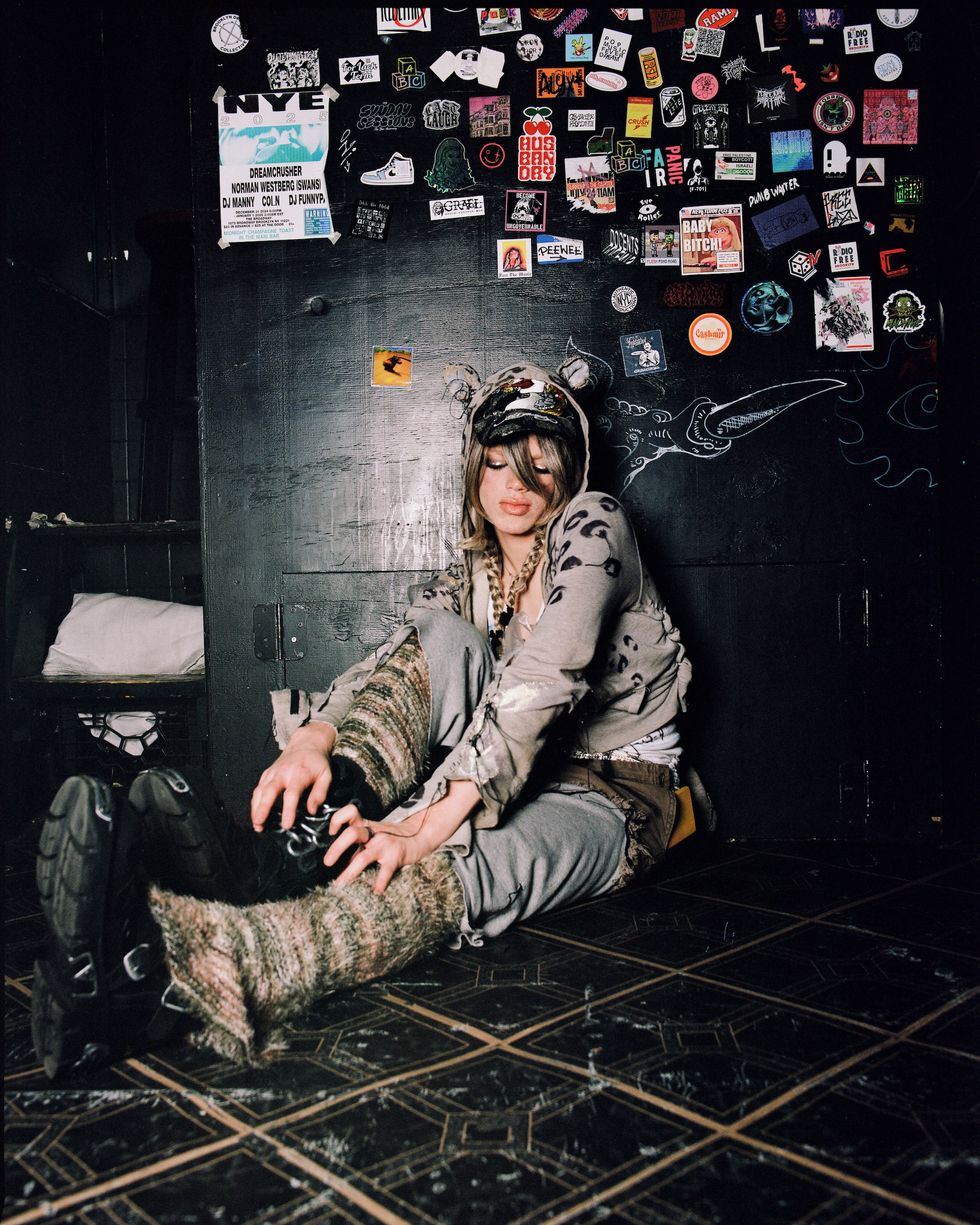
Oh yeah, the fashions, I can totally see that.
And she’s a rapper!
You went viral last year after you did “Fun” on 4 The Block. When you wrapped that, could you tell that what you had done was really hot, that people were going to respond positively to it?
No! I wasn’t even gonna upload that song. In the beginning, I was like, “I’m not even gonna upload this song for real.” Because I made that song in 45 minutes. It was supposed to be a joke.
Serendipidous. I’ve talked to a lot of artists who say, I put this down, I maybe wasn’t really thinking about it, I uploaded it, and suddenly my phone’s blowing up. Was that the experience for you?
Yeah, I had a feeling, because of the shock value of some of the things I said in it, but I didn’t realize that people would be that gagged.
Have you always been a sort of provocateur like that? Always said whatever is on your mind? Or is that something that comes out in rapping specifically?
Honestly, it depends on the situation. If I’m outside and I’m around other people, I don’t say a single word. I wait until people talk to me. But if I’m around, if I’m comfortable, yeah, I just be saying random shit. I should probably put tape over my mouth.
How did you come to rapping and uploading your videos online?
In 2016, I was in the spam era of Instagram, and I was always posting skit videos. So I’ve always been tapped into the internet and posting. I’m not too social when it comes to real people IRL.
You also live in Baltimore, which has such a distinct sound. And you’re from Delaware. What would you say are some of the influences that you absorbed from those places?
Definitely Rico, but it’s hard, because I was mainly raised in Delaware. And there was no music scene whatsoever. The only person I knew from Delaware was Sukihana, and she lived two hours away from me.
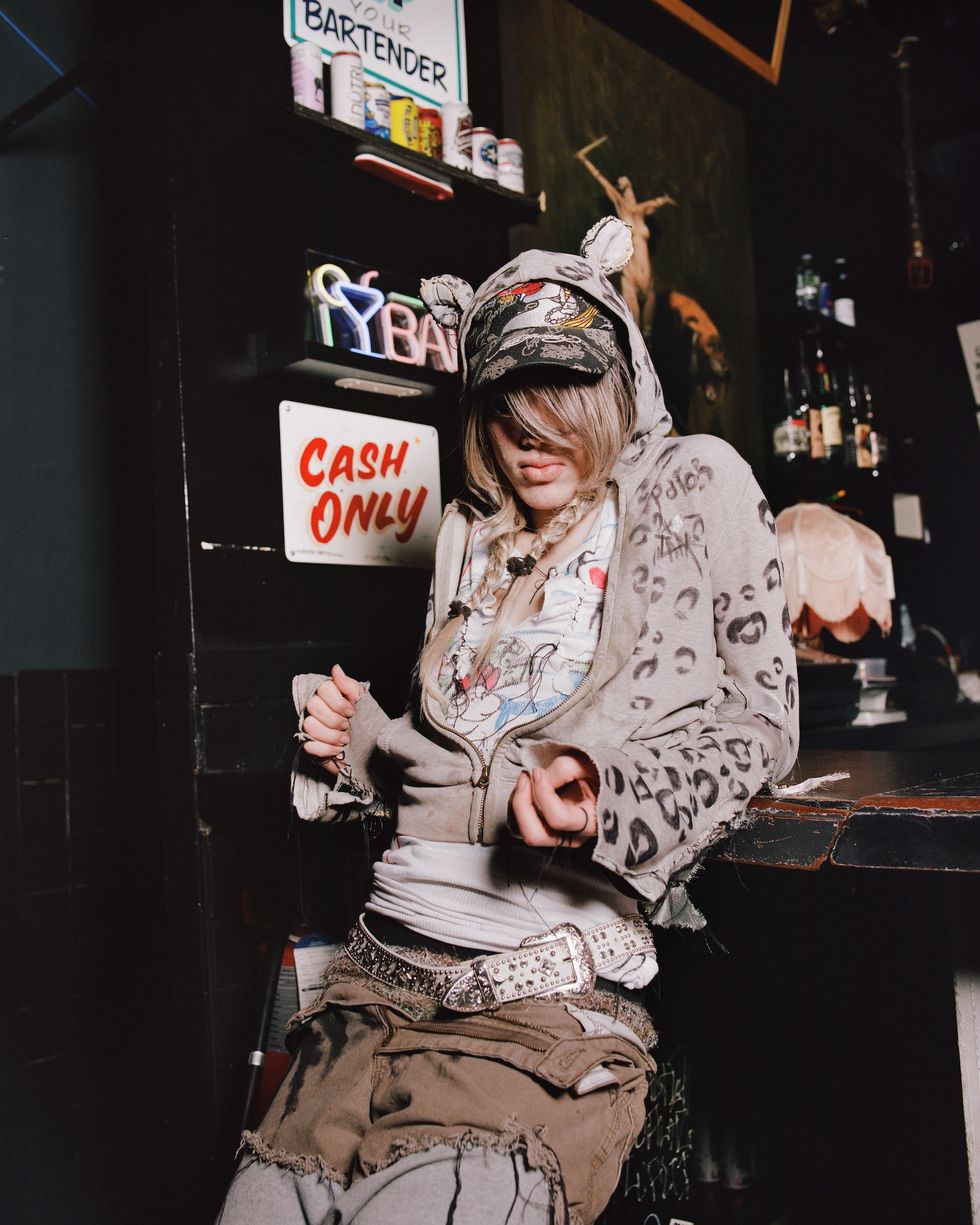
Shoutout Sukihana.
Shoutout!
Do you think that because you grew up in an isolated place like Delaware, you took a lot of your references from online?
Definitely online, because online was my escape from my small little town. This year was my first time going to a bunch of cities. It was my access to the world.
Did you ever expect that music would be the thing that let you see so many different places you’ve never been before, especially so young?
Honestly, no! Before I started making music, I was in high school, but then I dropped out of high school, and I was going to go home to become literally anything. I was either going to be an aerospace engineer or an astrophysicist, a scientist, or whatever situation.
You could have been the first astrophysicist rapper! I think that’s something that you could still do, probably.
I’ll have to sell my leg for college tuition. [Laughs]
Talk to me about dropping out of high school. How did that experience lead into you pursuing this next chapter in your life?
Honestly, for the first year, I wasn’t really making music like that. I was working at an ice cream shop on the beach. I was doing nothing. I am trying to get my ass up, you know?
You’ve become known as a rave queen. You talk often about them, and going to parties. What’s the scene in Baltimore like, or Delaware? Have you even been to a rave in Delaware?
In Delaware there are no raves. I’ve never heard of a rave in Delaware. I’ve never been, unless they’re not telling me there’s secret raves in the water. But in Baltimore, the raves, it’s so beautiful. In Baltimore, everyone is queer, trans, and if they’re not, their sister or their friend is.
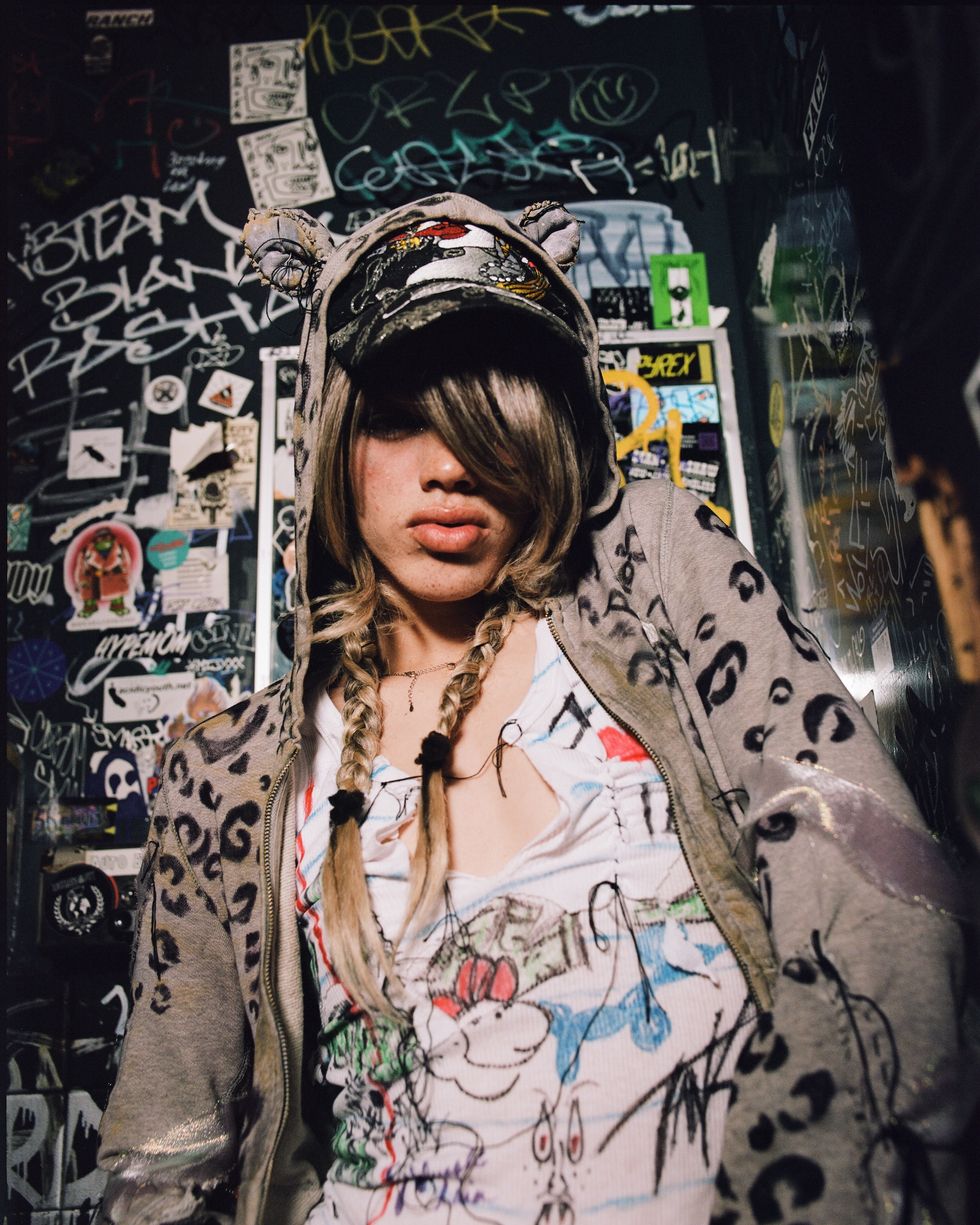
You talked in a recent interview about your dream club, and you mentioned you would want the furries there. Instead of your dream club, I’d live to know who are your dream people to party with?
There’s at least 12 furries, and they all have a table, and they’re all kind of like, mean, if you’re not a furry, they don’t want to sit next to you.
Okay, so mean, hot furries, first and foremost.
Their fursuits are real nice, like $3,000, and then… maybe just them. Just the furries.
Is there a big furry population in Baltimore you’re aware of?
Honestly? Yeah. Shoutout to the Baltimore furries, I know y’all, and a lot of them are hidden.
Maybe this year could be the first time there is a furry rave thrown in Delaware, maybe that’s something you can make happen.
And then three people would show up!
We’ll collaborate, we can find a way to get everyone out there. We’ll have to bus them in from New York or Baltimore.
I threw a little show, my first ever live performance, in Delaware, and it was I think 4/20, in 2023, and somebody came from Philly. I was gagging.
I live in Philly, and I definitely have known a lot of people from Delaware who come to Philly to party, not necessarily the other way around!
No, you’re right. That’s why I was like, What?
I was reading an interview recently where you described “Bitch, Where?” By Chief Keef as a diva-coded song, which I’ve become obsessed with describing things as. What are the qualities of something that make it diva-coded to you?
Not really elements of the song. It’s when I listen to something or if I see something and I’m like, me being in the area of this is really deep. It makes me deeper, and I feel so much deeper when I’m listening to “Bitch, Where?”
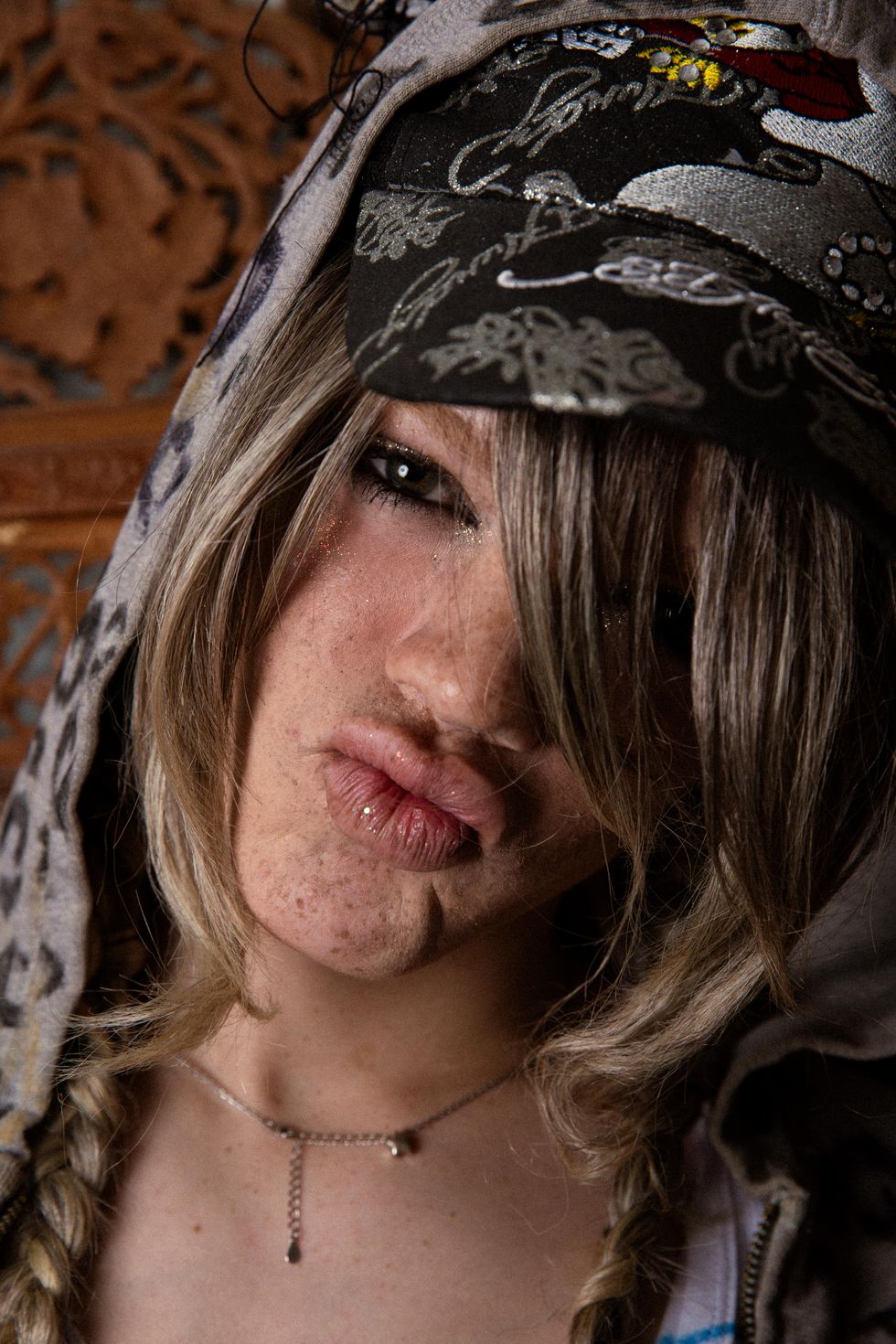
Do you have any other songs you’d describe as diva-coded?
“Save Me” by Chief Keef is diva-coded.
So Chief Keef, generally speaking, is diva-coded.
And they might hate me for that, but you know, there’s divas all around the world.
Let’s get Chief Keef on the next EP, the next album. Maybe he’s on this one!
God wasn’t too good. [Laughs]
You have a new EP coming out. Lots of people are excited for what you’re going to do next. What are you most looking forward to this year?
I’m looking forward to traveling and getting to perform for more of my fans around the world, because I’m always so glued to the East Coast. My first LA trip was my first time to the West Coast ever in my life.
What did you think of it?
It was scary! There weren’t that many people there, just because of the fires. It had this weird atmosphere, almost apocalyptic.
I’ve got to run now, I have to go listen to some Chief Keef and get to the airport…
Get to that diva music!
Get to that diva music! Well, for me, that’s Mariah Carey, but I think we’ll find a middle ground there somewhere.
Mariah and Chief… ultimate diva zone.
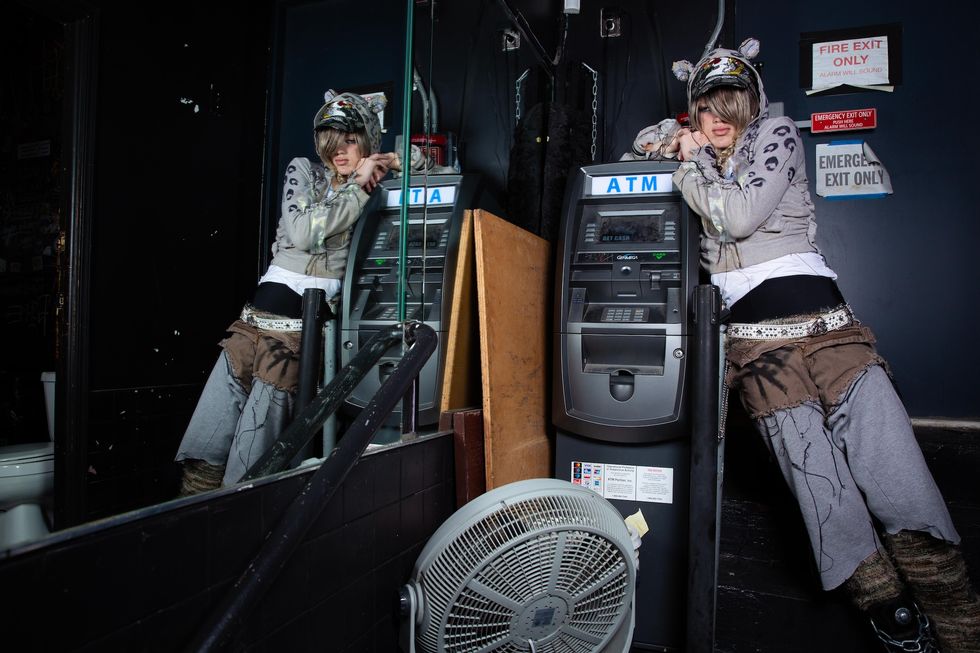
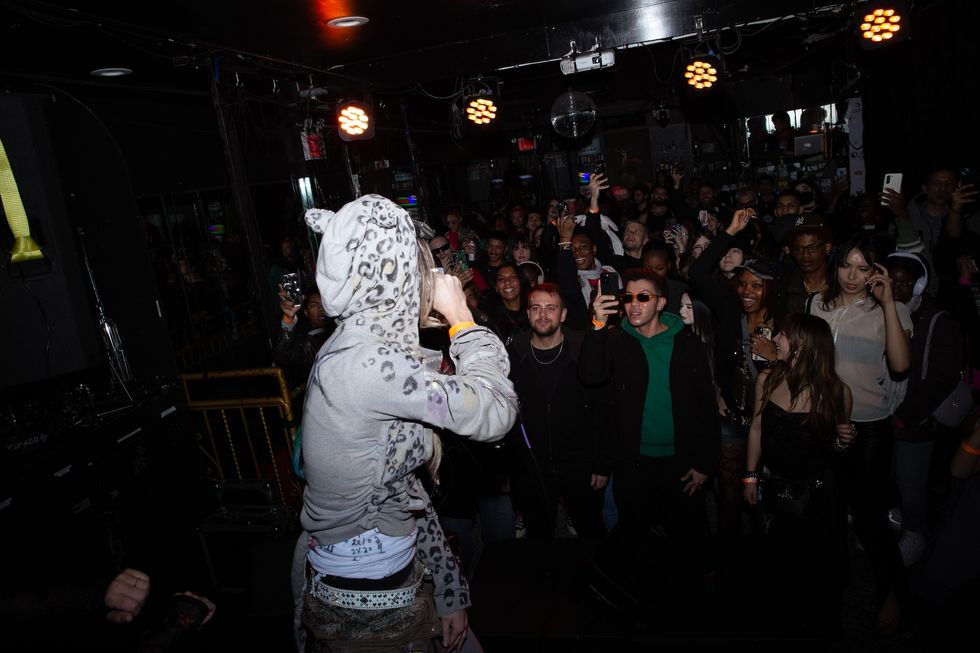
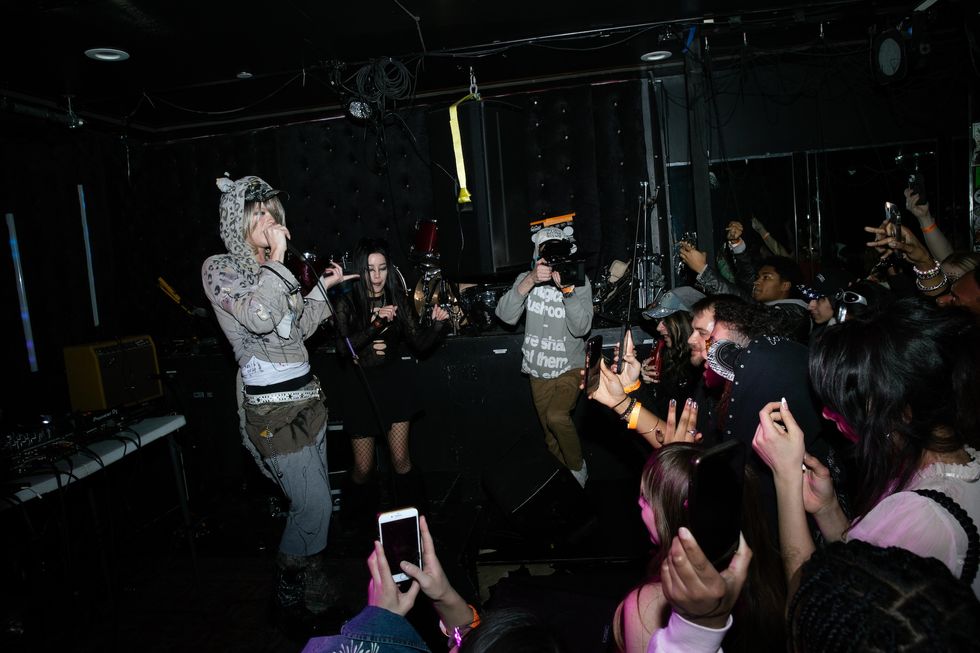
I am trying to get my ass up.
Photography: Diego Urbina
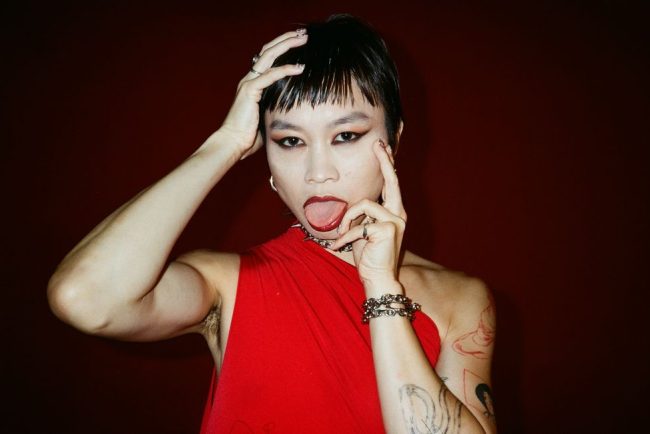
OHYUNG Could Die Right Now in Ecstacy
There’s a sense of space and breath in OHYUNG’s music. The composer, musician and artist has made a name for themself through their ambient and experimental work, alongside their contributions to film and TV, scoring Julio Torres’s 2024 whimsical comedy Problemista and HBO series Fantasmas. […]
Music
There’s a sense of space and breath in OHYUNG’s music. The composer, musician and artist has made a name for themself through their ambient and experimental work, alongside their contributions to film and TV, scoring Julio Torres’s 2024 whimsical comedy Problemista and HBO series Fantasmas.
On their forthcoming project, You Are Always On My Mind, OHYUNG maintains their previous work’s roomy sense of feeling while adapting it to the more familiar structure of pop. “no good,” a single off their forthcoming project, features darkly desolate drums, trepidatious string drones and vocals that are delivered with both restraint and power. There is the recognizable presence of a chorus, but still the floaty uncertainty of ambience remains. OHYUNG’s new single, “i swear that i could die rn,” continues this musical thread, pairing looping drums with airy layers of strings to create space for OHYUNG’s steady vocals. “The song is inspired by the feeling of experiencing something so divine and good that if you died right then and there it would be A-Okay,” OHYUNG tells PAPER, connecting that feeling to the experience of dancing to an especially memorable set by DJ Goth Jafar at Paragon.
The video, created by taehee and featuring original animation, depicts a current and future OHYUNG uniting on the dance floor. Interspersed with footage from misty clubs and animated kaleidoscopes, the video reflects the deeply emotional, often ecstatic experience of New York City nightlife. “I hear OHYUNG’s ‘i swear that i could die rn’ as a song about queer euphoria in rave spaces,” Tahee shares. “It got me thinking about how we discuss transition timelines in the trans community often as a clean break between before and after. The music video’s concept is an ode to both my past self and my ideal future, guiding me to my queer euphoria.”
PAPER chatted with OHYUNG and taehee about creating this unique song and video, the joys of dancing and the deep feelings behind the song.
What was the inspiration behind the song?
Ohyung: The inspiration for the song is the feeling of experiencing something so divine and good that if you died right then and there it would be a-okay. I sometimes feel that way when I’m out dancing to music at raves. The song opens meeting a version of my future self in a dark foggy room, the two of us slowly moving to the overwhelming music.
How do you hope fans feel when they hear it?
Ohyung: The idea of having fans is still a new concept to me… I hope they feel transported. I tried to paint a specific feeling and atmosphere with the music and lyrics. I also name-dropped one of my favorite DJs, Goth Jafar, as I was recalling a beautiful night I had at Paragon dancing to one of her sets two years ago, a little gift for the Goth Jafar girlies.
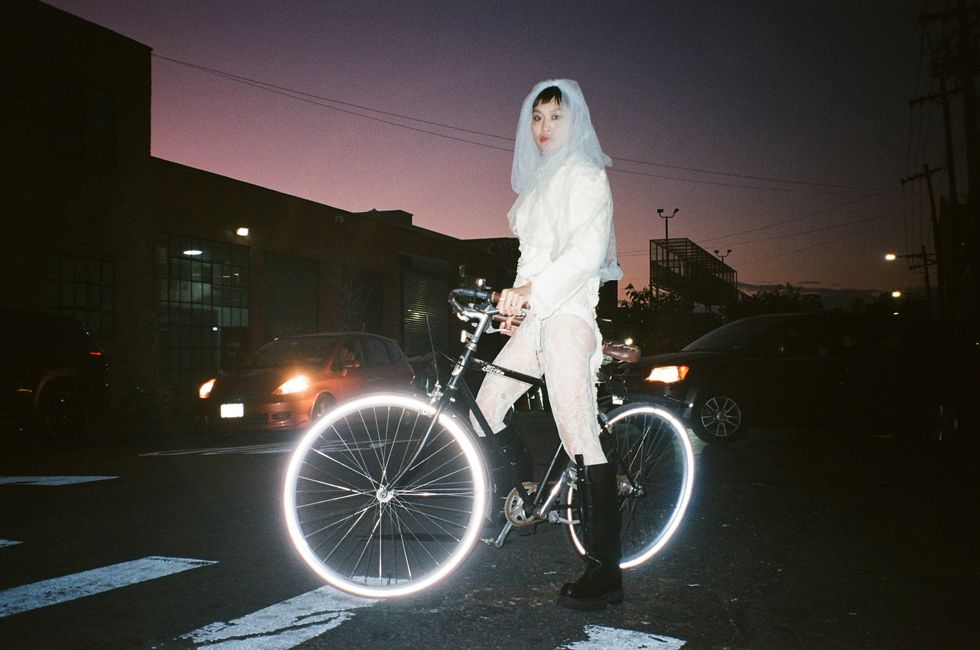
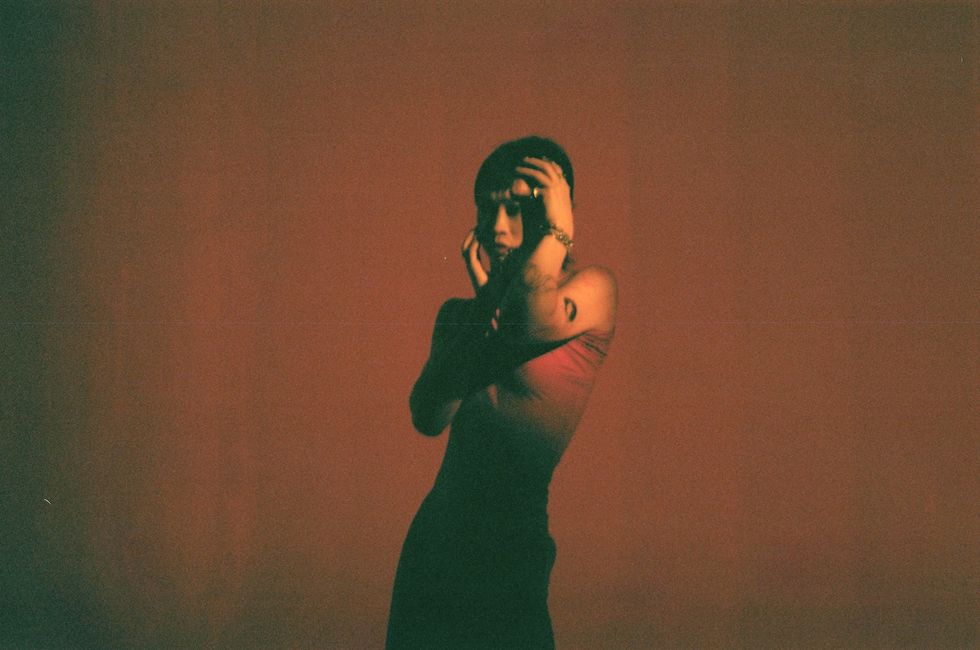
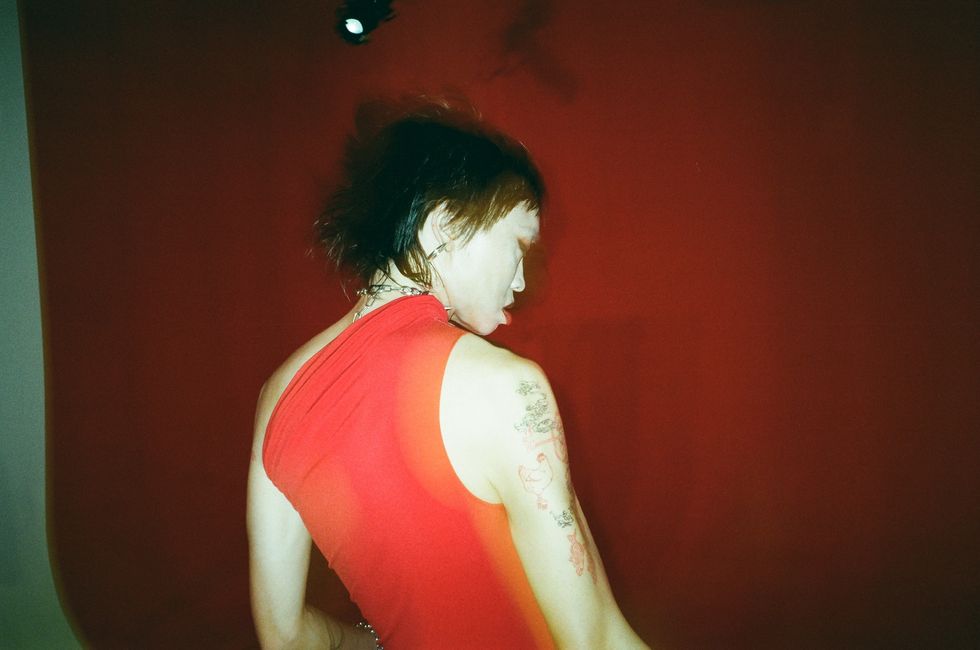
How did you translate the song into the video?
taehee: I hear OHYUNG’s “i swear that i could die rn” as a song about queer euphoria in rave spaces. It got me thinking about how we discuss transition timelines in the trans community often as a clean break between before and after. The music video’s concept is an ode to both my past self and my ideal future, guiding me to my queer euphoria. I don’t see the transition as a binary experience; it feels more like a push and pull, like how the heart is shaped like a coil. Each end of the timeline is molding and shaping the other. What are some challenges and/or highlights from creating the music video?
What are some challenges and/or highlights from creating the music video?
taehee: The biggest challenge was conveying the music video’s concept — the nuanced dynamic between the past and future self — without using text, while still leaving it open to interpretation. Water, represented through the water suit and floating teardrops, became a key metaphor for this fluidity. It embodies both the overwhelming sensation of drowning and the cathartic release that comes with letting go.
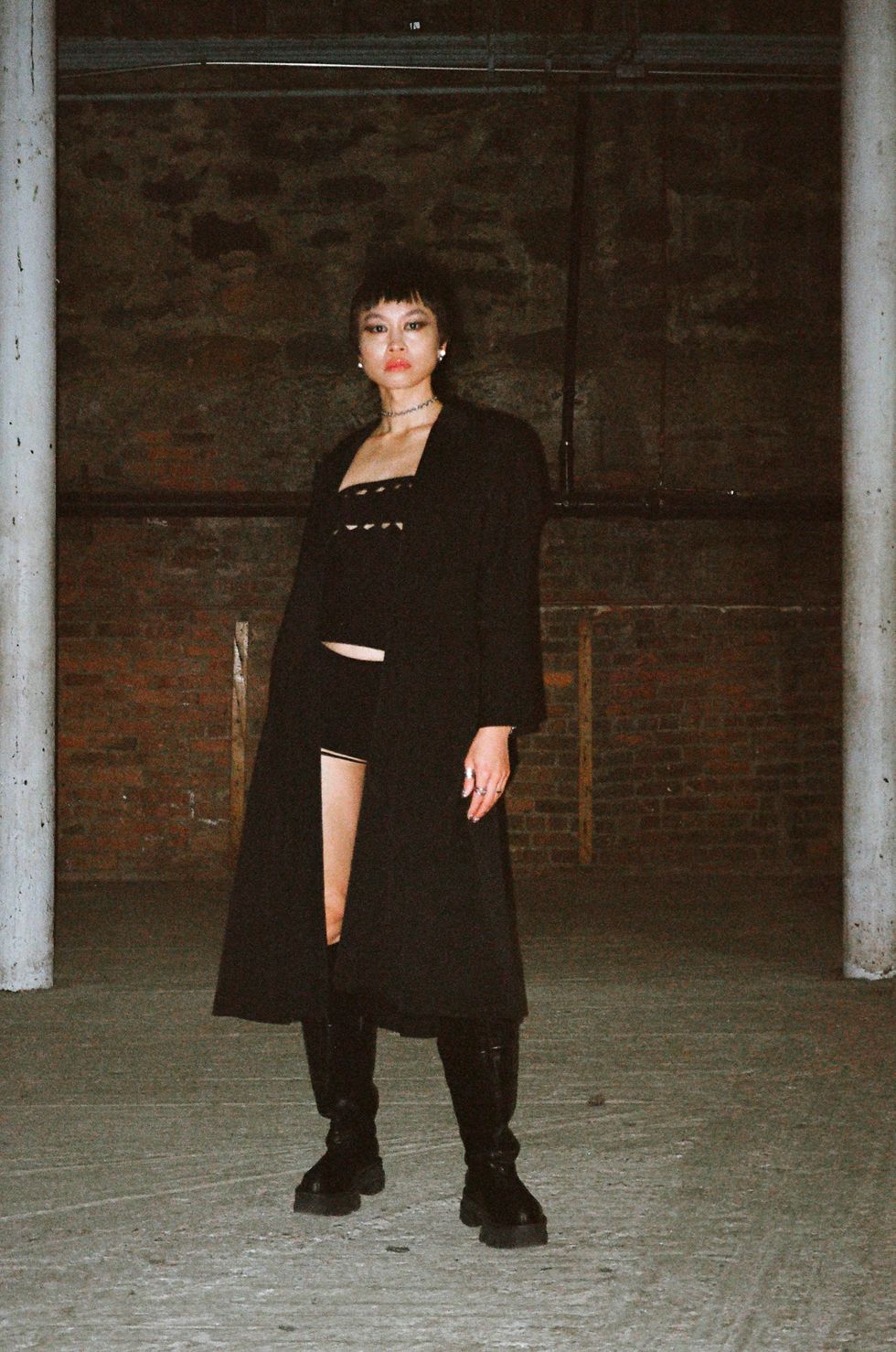
Photography: Marion Aguas
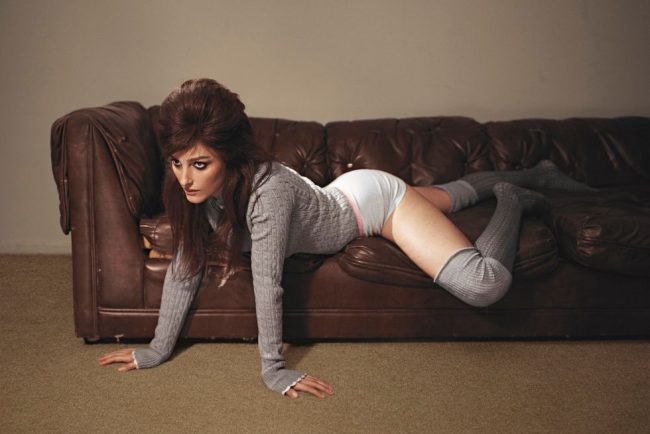
Banks Is Out of Her Head
BANKS isn’t very analytical about this stuff. She’s a conduit and the music flows through her. We’re catching up over Zoom ahead of the release of her next studio album, Off With Her Head. Knockout singles have included the fantastic “I Hate Your Ex-Girlfriend,” featuring […]
Music
BANKS isn’t very analytical about this stuff. She’s a conduit and the music flows through her.
We’re catching up over Zoom ahead of the release of her next studio album, Off With Her Head. Knockout singles have included the fantastic “I Hate Your Ex-Girlfriend,” featuring PAPER cover star and recent Grammy winner Doechii. She’s also coming off the 10th anniversary of her debut Goddess, which pierced Billboard charts and became an instant classic amongst my generational cohort. I ask her about the lessons she learned, about herself or the music, bookending the anniversary with new (to the rest of us) material for her latest project. “I think my relationship with it… I don’t think it’s changed. It’s me. It’s part of me. Every album I make is like a child of mine,” she says.
For BANKS, “With music and with writing, for me, it’s so not a heady process. It’s natural, like, I just feel like I’m a medium. It’s not really an analytical thing, where I can say, ‘Oh, it affected it this way.’ I grow and my music grows.”
Much of the new album consists of material she started working on in 2013, with collaborators like Sampha and Lil Silva. On how it feels to reconnect, a decade later, on Goddess’ “little sibling” of an album: “I think Goddess… My connection with the people I made it with was so intense, and it was at the beginning of all our careers, and we all needed to do our own thing and develop as our own artists. Coming back to each other after that, and all having grown as artists, it was such a joy.”
Released last Friday, BANKS says there’s “so many” songs she’s excited for fans to dig into. “‘Stay,’ ‘Meddle In the Mold’ is a fucking beast. I don’t know! It’s hard. I hate having to choose singles. Choosing the focus track when it comes out. The whole album is so special, the direction is such a fun vibe. ‘Make It Up’ with Sampha, ‘Guillotine,’ the whole thing!”
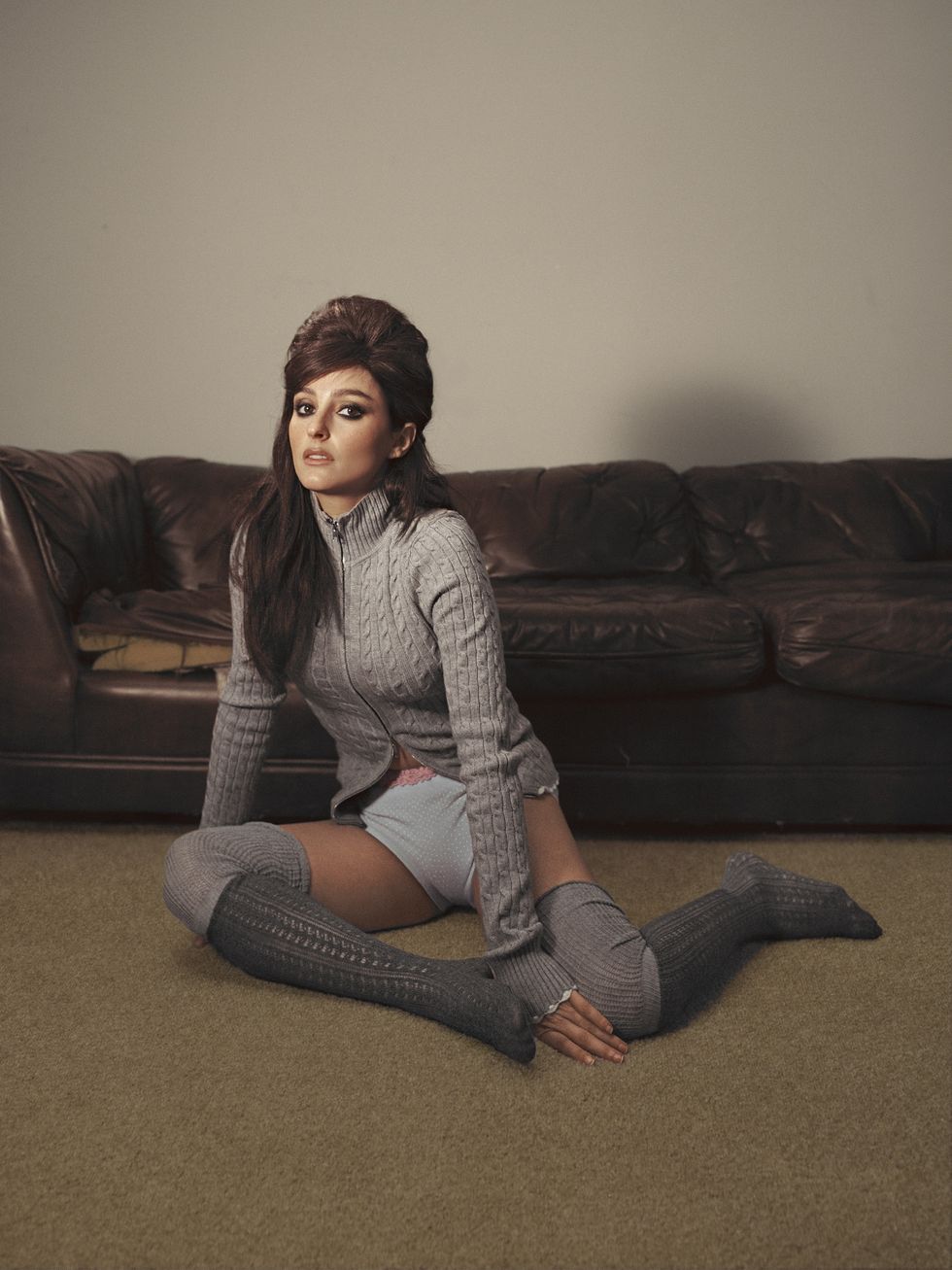
How long have you been putting Off With Her Head together now?
Honestly, since 2013.
Walk me through that experience, going back 12 years.
I started a few of them that long ago. This feels like it’s another first album to me, because of that. Some songs were started and finished within the year, some of them started 10 years ago.
What was it like to go back to work you started that long ago? Did it feel like there’s been so many versions of yourself since, did it feel like coming back to yourself?
It’s a mix, because yes, I’ve grown so much, but it’s funny. My connection to music and the certain, specific melodies I’m drawn to, are always the same. The same way I felt about those songs when I started them is the same way I felt about them when I rediscovered them and finished them. It’s been a really beautiful thing.
I was listening to the new album, and I can definitely hear pieces of Goddess on it, which you’ve said is the little sibling to this album. How did you rediscover the work, a notebook, a hard drive?
There are certain songs I always knew I wanted to finish, and then I made a few songs, like “Stay” and “Delulu” and it reminded me of these other songs. For some reason, they fit together. It was a natural thing, it wasn’t really thought out. And coming back together with Lil Silva was just the best. I’m so happy that we’re back in the mode.
You talk about going back to work with producers that you worked with on Goddess. How did that feel?
My connection with the people I made Goddess with was so intense, and it was at the beginning of all our careers, and we all needed to do our own thing and develop as our own artists. Coming back to each other after that, and all having grown as artists, it was such a joy. And it’s really fun finding a new dynamic and a new vibe in the studio, and it felt right. I don’t know, sometimes things feel right. There’s not really a reason I can put to it. I mean, the song “Move” is a song I started with Silva a few years ago, and we didn’t finish it. I don’t love working remotely. I like being in the room with someone. So I made my own version of it, and I texted him, and I was like, “Hey, I’m gonna put this on the album.” And he was like, our version is better. And so I was like, “Okay, fine, let’s just finish it remotely,” because he’s in the UK. And then it all happened from there.
Do you feel like your relationship to Goddess, going back now, has changed at all over the years? Did you discover something new about what you made with it?
I didn’t discover anything new. A lot of the time when artists release their first albums, that’s how people fall in love with them. So people have a deep attachment to that album. And so a lot of artists, it feels as if my other work is just as important, just as special. And that’s why maybe you get that vibe of artists shunning their old work, because sometimes it can be frustrating when people want you to stay the way you were in the past, and that they fall in love with you one way, and they don’t want you to grow. I felt that before for sure, because Goddess had such an impact. It affected a lot of people. I’m so grateful for that, but it was a celebration, this 10 year anniversary with it, and I think my relationship with it… No, I don’t think it’s changed. It’s me. It’s part of me. Every album I make is like a child of mine. And definitely now, like when I was re-singing those songs, it felt like, it’s the difference of remembering something painful and going through something painful. It’s like, damn, I went through that and I got through it. But having those same collaborators on this album, it feels like a rebirth, and I’m really excited about it.
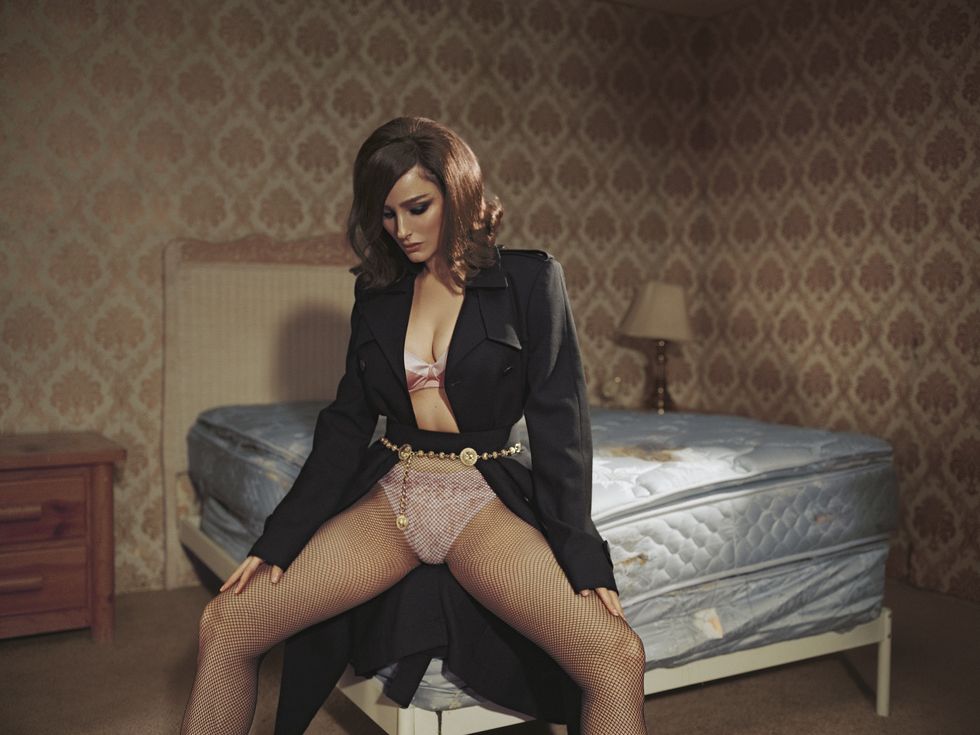
Speaking of rebirths, I was reading an interview that you did during your last album cycle where you talked about taking the reins on Serpentina and co-producing that album. How did that confidence and that experience of taking the reins on that album translate to making this new album?
I don’t know. Again, it’s funny, because with music and with writing, for me, it’s so not a heady process. It’s natural, like, I feel like I’m a medium. It’s not really like an analytical thing, where I can say, like, oh, it affected it this way. I grow and my music grows. Definitely, production wise, now I’ve got a hand in everything, always, and I always really did. I just didn’t know how to engineer. So now I do. Every artist should learn how to do that, because it’s like, you’ve got only one arm if you don’t know how…
So much of your writing and lyricism feels, I don’t want to say like a diary entry, because that feels infantile, but very much drawing from your own personal experience.
It is, though; it’s like my personal diary entries!
On this new album, were there specific experiences you drew from when making it, or a time in your life?
This album is really cool in that it draws from multiple part times in my life. “Love Is Unkind” is about a really toxic relationship that I was in, probably my most abusive relationship I’ve been in, and “Stay” is about my most wonderful relationship, and the one I’m currently in. What’s cool about this album is it’s not from one time, so it really represents a body of experiences. It’s not just one facet. It takes you through the growth of me as a human, as a person.
Does music become a way to process those experiences, in the aftermath?
Music, for me, it’s got no time limit, because it’s either a fortune teller or it’s a way to process the past. I started “Make It Up” a decade ago with Sampha and Silva, and we wrote the hook in 2013. We hadn’t worked together in so long. And then we came back together, and the chorus, it’s about what happened and coming back together. So it feels like a fortune teller in that way, where sometimes when you write something, you don’t even know why it came out, but it’s like it came out because of something that’s gonna happen in the future.
So often you hear about the way music affects its listeners. You hear a song, and you associate it with a memory or a time in your life. I don’t often hear that artists think of their own songs like that too, these little time capsules of your life.
They are time capsules for me. They’re much more accurate than a photo or video.
Because it’s coming directly from your soul, your heart.
Exactly. It’s not like a picture of your outsides. It’s your guts. Music, for me, is like my insides.
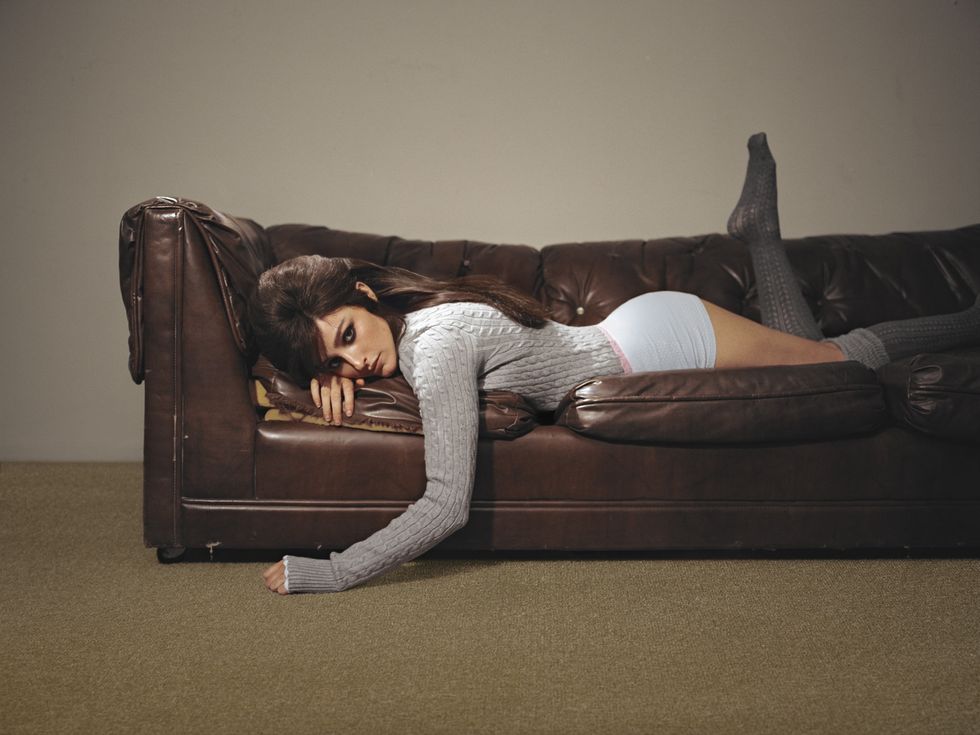
More on the visuals and fashion aesthetics of the album, I love the cover, and the mask and big hair, which is so glam and gab to me. Walk me through how you though the visuals of this new era you’re entering.
I’m in such a free-flowing, creative place. I wanted to have fun with it. I wanted to be fearless and get out of my head, which is what Off With Her Head means. It’s getting out of your head and into your body and into your joy and into the present moment. I had a lot of fun with it. You know, “I Hate Your Ex-Girlfriend,” that video with Doechii and Charlie Denis directing, it was so much fun to make. I’m just having a lot of fun.
The video continues one of my favorite pop music traditions, of women on a pop song with the bed choreography. I was thinking of Madonna and Britney in “Me Against the Music.”
That was definitely one of the inspirations for the video.
Do you have a favorite music video, now that I’m thinking about it.
I grew up with TRL, so it’s like, for sure, I do. I mean, any Missy Elliott video, Gwen Stefani used to kill, she’s an icon. And, yeah, I mean, every Britney video was always iconic. Fiona Apple, “Never is a Promise.” It’s one of my favorite songs, and that video is incredible, stunning, and her “Fast As You Can” video too, where she’s like, going backwards in time while singing. It’s crazy. I mean, I love music videos. It’s kind of a shame that they aren’t as important these days, like that now it’s all about short form content and quantity over quality. People don’t really watch music videos how they used to, and so labels and people in the business don’t really want to focus on it as much, which I totally get because they’re really expensive. But for certain songs, it’s important and very much worth it.
We’re the same age, and we come from a time when our perception of artists were shaped by music videos they were putting out. It’s interesting to think that newer generations don’t really have the same relationship to their favorite artists that we did.
There’s a lot less mystery. It’s very much like, what did you eat for breakfast today? Sometimes, I hate to say this, but sometimes I feel like artists feel like monkeys now, dancing, like, make a skit. Do a funny TikTok, do a dance. Like, do a comedy routine. Sneeze and go viral, so maybe you’ll discover your music, like it’s so gross.
I’ve read so much about your influences, and who you were inspired by when first making music, but who are the artists that you’re listening to now? What is on your playlist, so to speak?
Let me open my Spotify.
I love this, love knowing about people’s Spotify histories.
Fridayy, his song “When It Comes to You,” I love that. I really love Clairo, I love that song “Sexy For Someone.” Sasha Keable, crazy voice. Oklou, Sampha, obviously. Khruanbin. So many. There’s so much talent in the world.
What, if anything, are you really excited for people to hear from this album?
So many. “Stay” and “Metal In the Mold” is a fucking beast. I don’t know! It’s hard. I hate having to choose singles… choosing the focus track when it comes out. The whole album is so special, the direction is such a fun vibe. “Make It Up” with Sampha, “Guillotine,” the whole thing!
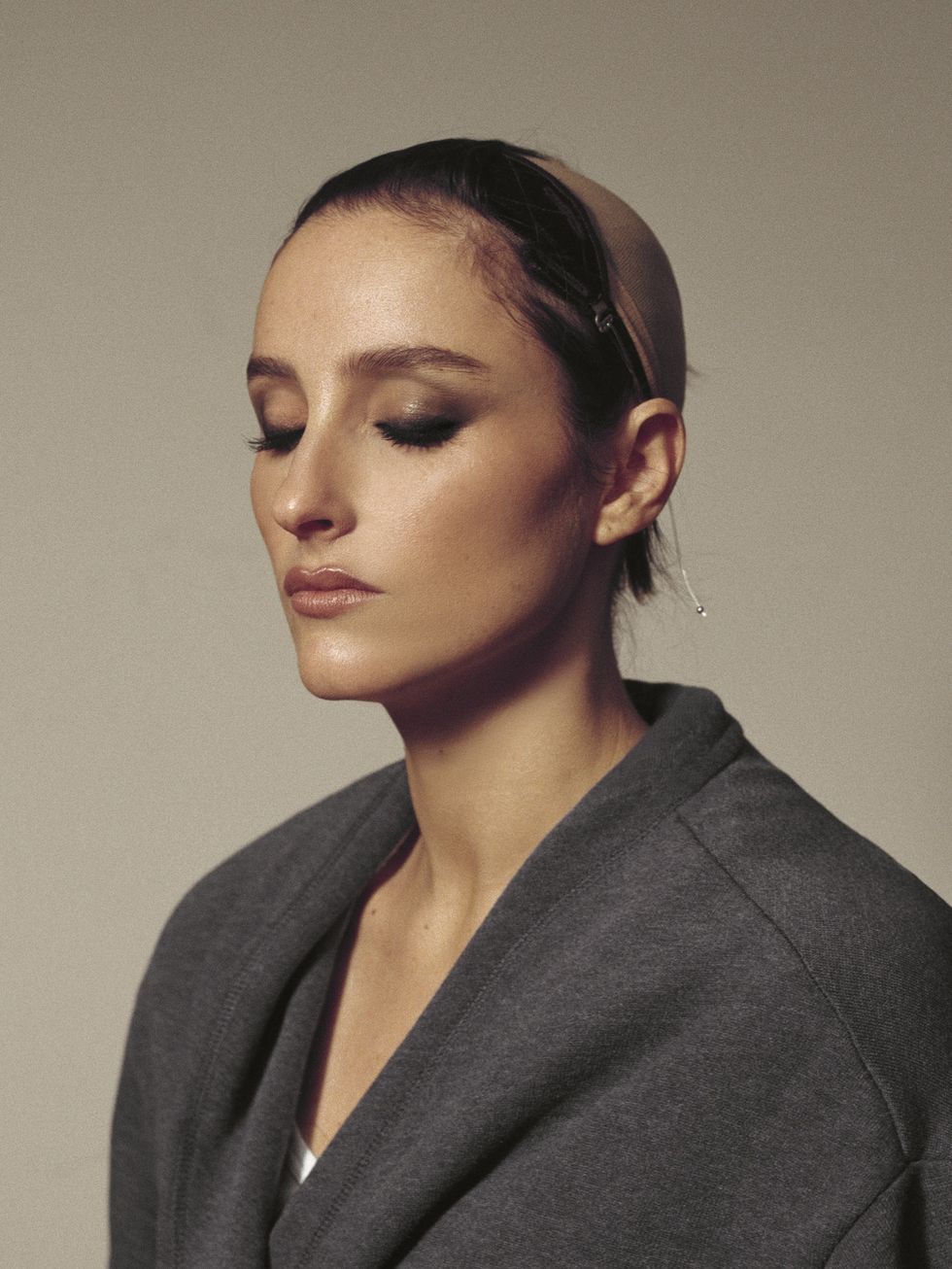
[This album] takes you through the growth of me as a human, as a person.
Photography: Charlie Denis
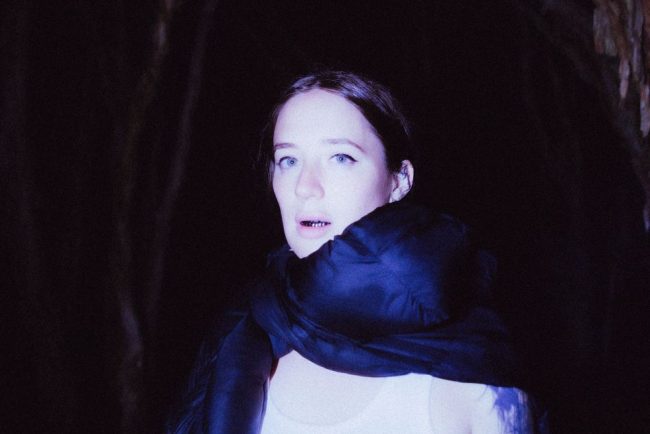
Hardcore Queen Kilbourne Talks With Hannah Baer
Ashe Kilbourne is loving “uncomfortably empty” soundscapes. The hardcore queen, who’s been a staple of New York’s underground for years, gives her signature industrial bend this sense of restraint on the seven-track album If Not to Give a Fantasy. Out on her own label Hammerhead […]
Music
Ashe Kilbourne is loving “uncomfortably empty” soundscapes. The hardcore queen, who’s been a staple of New York’s underground for years, gives her signature industrial bend this sense of restraint on the seven-track album If Not to Give a Fantasy. Out on her own label Hammerhead Records, Kilbourne’s latest project interrogates listeners’ relationships to the artists they love, encouraging a more spiritual connection that transcends quick hit, modern club music.
Whether it’s the solemn bird song of “Loon Call” that rattles spontaneously or the acidic “Double BBL” that oscillates between regular and double time with a mind of its own, Kilbourne pushes deeper with this material and strives for intimate experiences on the dancefloor. “I’m really interested in finding a sound that is my own and exists outside of essentially commercial ways of understanding music and divisions within it,” she says.
Below for PAPER, Kilbourne chats with author and personal friend Hannah Baer about dance music, subculture and the “sexy, psychedelic” possibilities of hardcore.
As we’re catching up today, you’re putting new speakers in your car and it made me curious: what music have you been listening to lately?
I’ve been listening heavy to the 2025 soca season. It’s exciting having new music out every week, it reminds me of high school when I knew the release dates of bands. I’ve also been listening to 2000s Italian hardcore, I love how trancey the melodies are.
Wow, I bet the two sound really good together, or at least complementary. I want to hear about your new album and the sonic palette you drew from this time around.
They sound heavenly together. My last release I was a little more techno-pilled. I was really moved by the experiences — many of which we’ve shared — in non-hardcore environments, dancing to music that was way slower and more restrained than what I make or play. I wanted to transmute that into hardcore. I am still interested in this conversation, but I’m also feeling much more expansive in what I’m drawing on.
Yes, totally. I feel like one thing I really associate with you is a kind of disciplined relationship to the legacy of the genre of hardcore. And I’m curious what that’s like in a music landscape that can feel very “flavor of the month.”
There’s obviously lots of influence from industrial hardcore of the last 20 years, but I also tried capturing some of the energy I used to feel working on Philly and Jersey club tracks when I first started making music in 2011, and playing with real minimal soundscapes — like uncomfortably empty.
I’m such a nerd for [the history of hardcore], but I feel like I’ve horseshoed a bit. This is the least interested I’ve been in genre — at least for my own production — in a long time. I care deeply about my influences, but I’m really interested in finding a sound that is my own and exists outside of essentially commercial ways of understanding music and divisions within it.
You and I were chatting recently a lot about Nosferatu and how The Witch is totally beyond, and I reckon while Nosferatu is a beautiful movie, its power is restricted in that it is a tribute to previous incredible works of art that the director loves.
Yes, the anxiety of influence.
So it’s a beautiful piece of art that honors his influences, yet it doesn’t necessarily transcend or reinterpret them.
It sounds like you feel freer to fuck with your influences at this point in your trajectory than maybe you felt on earlier records. I’m thinking about NJ Terror, which was the first EP of yours that I really listened to. And I got so obsessed before we even knew each other.
Aw, definitely. I feel like around NJ Terror I started becoming really interested in articulating something grounded in history. It was my second release on a hardcore label, and I think I wanted to prove to myself and others that I could make music like the records that influenced me.
You’ve paid your dues in that regard, at least that’s my sense. One thing we’ve talked about over the years is the audience around hardcore music in the US versus other places. You tour a lot internationally and in countries with much larger hardcore scenes than New York. I’m curious what your sense is of the culture around hardcore in the US right now?
It’s exploding in a way it hasn’t in years. Ten years ago I felt like I knew practically every person my age who DJ’d or was obsessed with hardcore in NYC. Now there are so many events and collectives I’m always learning about and meeting new heads, most of whom are younger than me, which makes me think the scene will continue to grow.
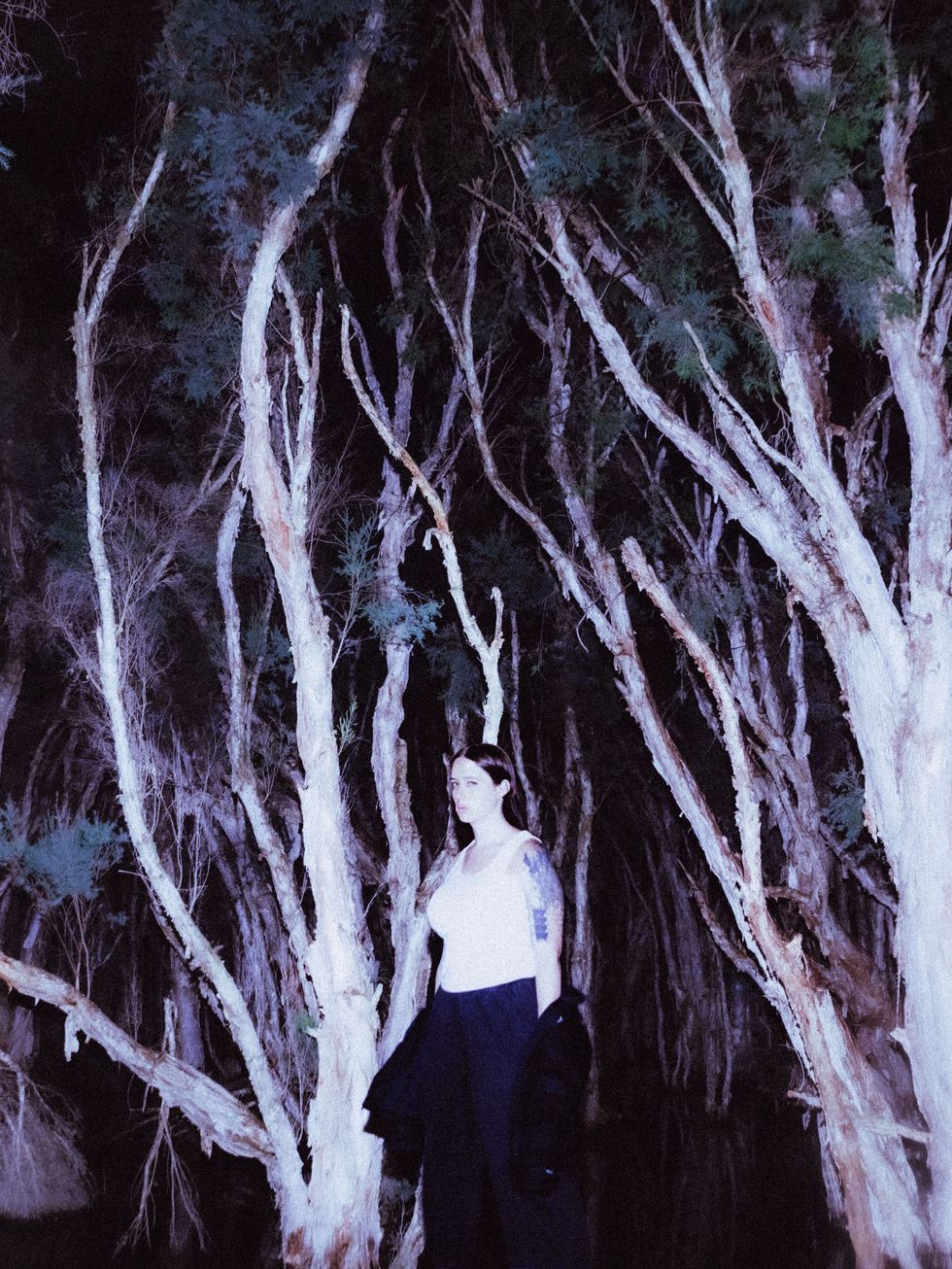
I was going to ask something about electronic music and queer culture in NYC.
I was about to say something about hardcore being really gay here.
Like, the dance music subculture most associated with elevated taste and thoughtfulness is queer in NYC. How does that relate to hardcore?
US hardcore is special compared to how straight hardcore is in the Netherlands and most of Europe. A lot of the people moving the scene here, playing shows, producing music, putting on parties, are gay or trans. It’s funny because the scene is LGBT’d out, but I don’t think hardcore and gabber are perceived as part of an “elevated taste” set. Techno folds very neatly right now into fashion, celebrity, hedonism, and I appreciate that hardcore can’t fit as cleanly. There’s something confrontational and future-facing about that sound that demands more than just casual consumption. But I do believe it is beautiful, sensuous music that deserves reverence and analysis.
I love that. And yes, I feel the same way about hardcore — it’s like a bit anti-assimilation feeling, especially in the US. Which is why it’s cool to imagine it being kind of white bread in the EU. I’m also curious what it’s like to be in a straight scene over in the EU, and if it’s fun in a way?
Being in EU hardcore feels funny. Most of my friends in NYC are dolls or gay, and it’s way rarer to see visibly queer or trans people at the big hardcore events. Once I was playing a Dutch hardcore show, very stereotypical gabber crowd — shaved head, toned, tall, shirtless men in track pants dancing hakken — and I was spiraling next to these guys like, “Damn, I am playing the parties I dreamed of, but I am alone as a trans or queer person.” I was in this goofy pity party when one of the gabber boys grabs another’s head from the back, pulls him in and starts tonguing him down. It was a good reminder we’re everywhere.
[Laughs] We’re literally everywhere, it’s true. Can you say something about your recurring party Hammerhead. I’m curious to hear what you envisioned for it initially and how you think about staking out a space in IRL for the music?
Hammerhead has been my lil baby for the last two years. I’ve thrown six parties in New York plus a couple of out-of-town showcases and released three albums. The concept is hardcore techno on a really loud system with long sets from people who’ve really shaped the genre here and globally. It’s not a queer party, but it leans that way. The sets are always very long. My goal is three hours per artist, so they can say all they need to say. I live for all kinds of hardcore, but with Hammerhead I wanted to emphasize something sexy and psychedelic about the genre.
I’ve found them to be so intimate and also diverse — not in the college admissions sense, but like–
Intimate is so the vibe. Playing at an 80,000-person hardcore festival is the polar opposite of intimate, and that’s the setting that dominates people’s idea about the genre, so I wanted to throw a party that felt deeply cozy and explorational.
Yeah, it’s actually a really beautiful mix of people I would never see out at a typical techno party, plus all of my deep nightlife loves. Regarding queerness, at the last Hammerhead, I was dancing with Lex, and she was like, “You should write a think piece for Rave Forum about Hammerhead,” and I was like, “Would it be about how Hammerhead is post-woke?” Which was a joke. But I do think there is a way that the queerness in the space feels subtle and kind of like past a flat “idpol” or identitarianism.
The scene is growing supplely right now, and I don’t feel the need to cordon it off into gay or straight. It’s for the freaks and that means there should be a healthy presence anyways. It’s not casual, it’s for people who deeply want extreme sound and catharsis from a very special kind of music.
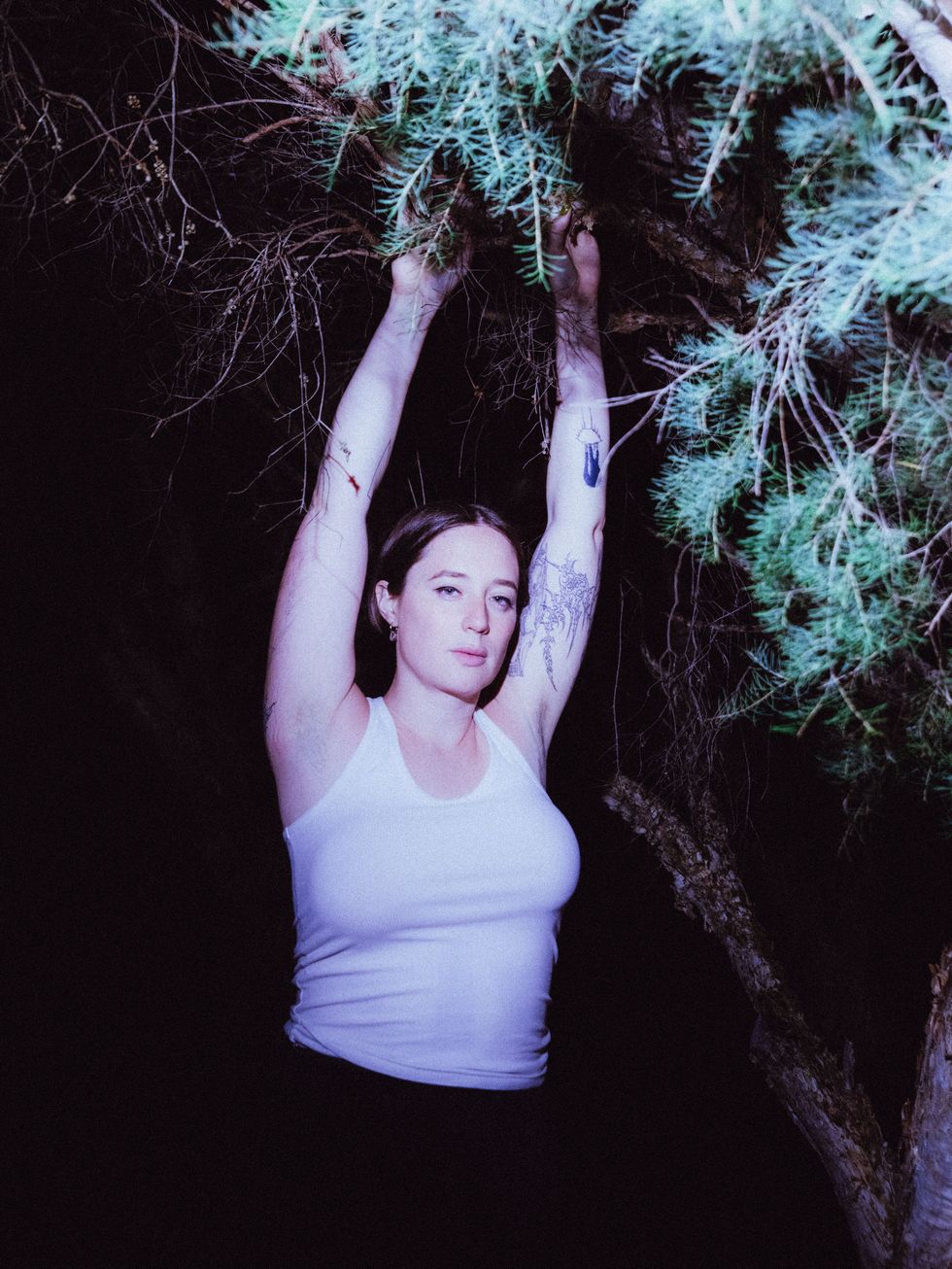
Do you have goals or wishes for what happens with the party next?
I have more artists I want to invite, both within and outside the US. More legends, more newcomers. My dream is to make it into an all-Sunday affair so it can get really twisted — afters zombie, but being constantly shocked back into consciousness. I think a dark room would be great.
Yes to all, I love this buffet. I know all-day Sunday feels like a special vibe in this time. Will you tell me some about your process around production? I’m curious to hear about your workflow and how it’s evolved, especially with the new album.
I made a lot of kick drums. In hardcore, you’re not allowed to copy, so you gotta make ’em all yourself and, usually, most sound really bad. I tried to use more hardware, not because it sounds better but just to push myself into new habits — again, allowing for minimalism and sitting in the discomfort of using fewer elements in a song. Trading loudness for dynamics. Except in “Double BBL,” that is very maximal style.
Will you tell me about the Betty Boop edit for “Double BBL”? That track goes so hard.
I love my BBL’s and this track is a tribute to the procedure — pumping up the sound, making the kick drum juicier and juicier. In the clip, Betty goes to hell, which is this little factory cranking out new devils — kind of BBL clinic vibes.
I live for all kinds of hardcore, but with Hammerhead I wanted to emphasize something sexy and psychedelic about the genre.
That’s so cool. Betty is very BBL energy. What’s next on your horizon after this record drops?
I have a couple of new songs that I wrote once the album was done. It felt so good to start something new. I have a couple of tracks with Baseck that I think are really strong and want to finish — so many collabs I’m hyped on. I’ve also spent the past six months working on audio for my friend Maxi’s video game Babysteps, which is coming out later this year. Learning how game composition and audio works has been so stimulating. I finally want to rescore The Matrix — I told you I was going to do that in 2020 and it’s time to get to it.
You’re always doing so much, I really admire it.
Literal same.
Lastly, is there anything you would say to readers who want to get into hard styles and don’t know where to start?
Next time you’re in a car at night, play Ophidian – Butterfly VIP as loud as you can and drive as fast as you can. Watch old party footage. Come to Hammerhead, obvi. This music is everything — it’s what I love and can’t stop loving.
Photography: Brandon Waard
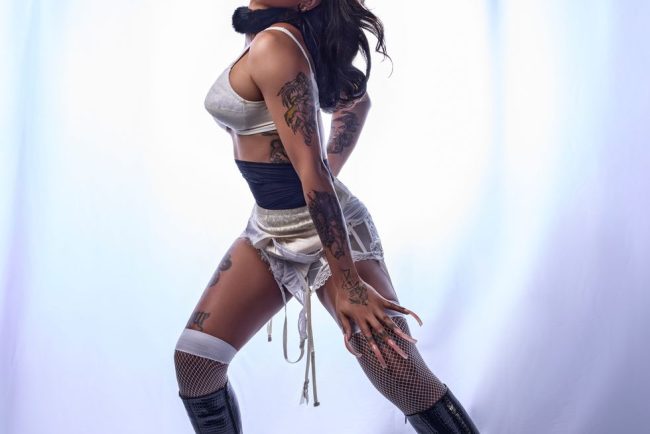
Raven Valentine's Debut Album in Her Own Words
Raven Valentine’s album title Everybody Loves Raven is a manifestation of her relationship with the world to come. Today, the rising artist is known — and beloved — in the queer underground, but her debut project has legs to move her well beyond the community […]
Music
Raven Valentine’s album title Everybody Loves Raven is a manifestation of her relationship with the world to come. Today, the rising artist is known — and beloved — in the queer underground, but her debut project has legs to move her well beyond the community that raised her.
Over 13 tracks, the rapper reckons with feeling “alone and hopeless at times,” having navigated death, homelessness, drug addiction and more along her journey as a trans woman. “But still we are victorious in this game called life,” Valentine says, rising above the pain and using music as a vehicle to heal her trauma.
Below for PAPER, she breaks down the project, track by track, in her own words. “It was truly such a beautiful privilege and experience to create this body of work,” she says, “and I’m so thankful for it.”
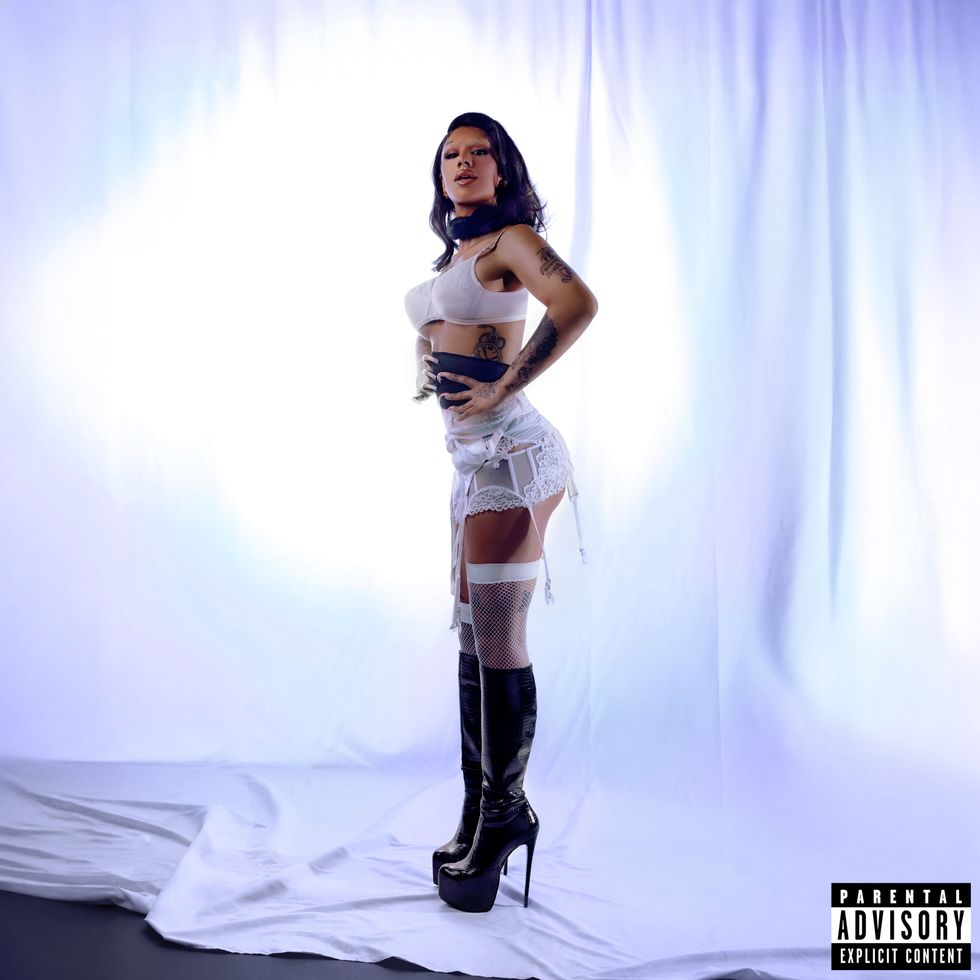
“All On My Own”
This song was the first song I recorded on the album. I recorded it in the closet of my shitty mismanaged apartment where my beautiful next door neighbor had passed away in her apartment. I was in the height of my addiction, my mother was homeless and my sister was in the custody of CPS. I felt alone and hopeless at times, but my community held me up.
“I Miss U”
A lover of mine had died and another left me and another left me, causing me to become homeless again (seven years prior to the album being made). It was about my yearning to be loved and to love. Self-deprecation and the means of which I was doing it to isolate myself long enough to figure out what Raven really wanted from life.
“Days Like This”
I was tired of being so sad, and this song allowed me to finally cry my first tears of joy and understanding to truly begin to heal my trauma and humanize my experience.
“Guess I Care”
A quick summary of my life and why things happened the way they did. My family is so strong and I’m so proud to be a part of it. I come from a family of women who suffered at the hands of men and broken systems. Drug addiction caused by horrendous acts beyond our control. But still we are victorious in this game called life.
“Serina’s Interlude”
I asked my mother to do this interlude because I felt that it was important for her to explain that spirituality is an important part of our family. We are Native Americans, so we believe in many things. We wanted to teach people that you can still have a personal relationship with “God” or any higher power regardless of the hateful things evil men project onto us.
“Realest Bitch I Know”
Second song I made from the album, and the start of me believing in myself and my purpose. It was a cocky, fun feeling that I wanted everyone to feel. They’re the realest bitch they know.
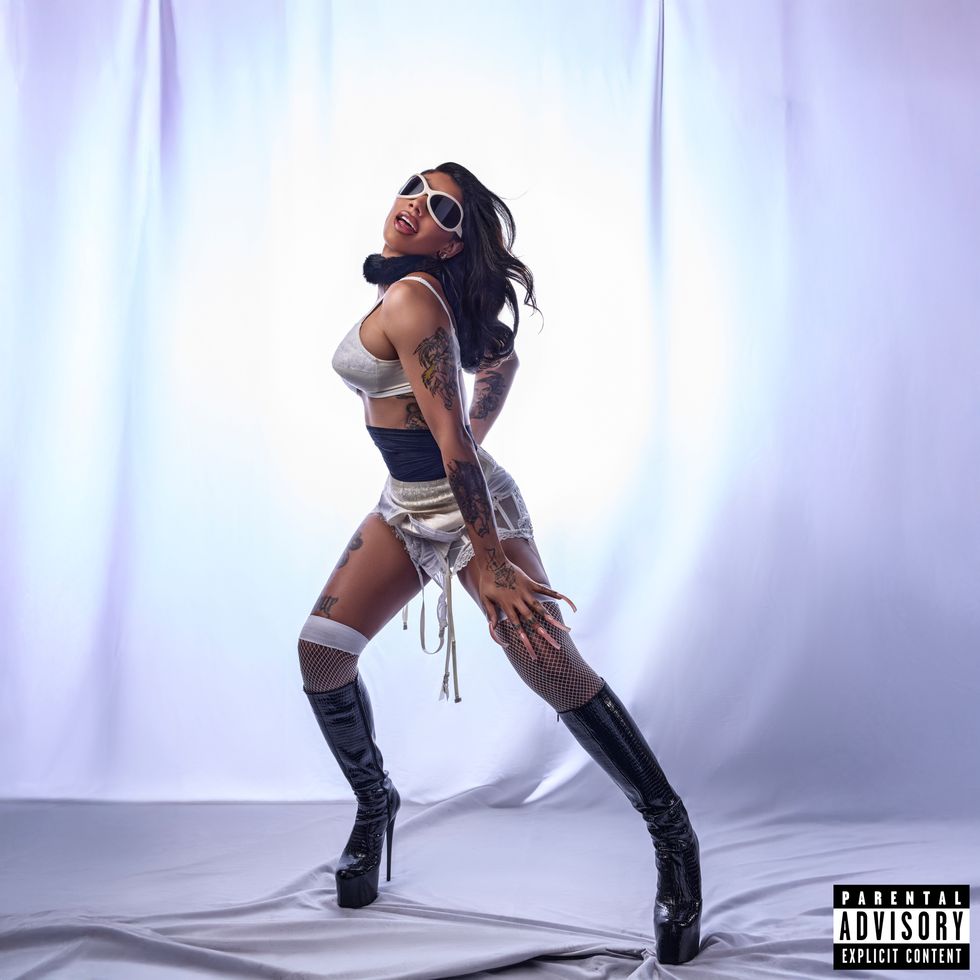
“Cunt”
This was me really stepping into my alter ego and letting bitches have it. I am so humble, but Raven isn’t. She’s a free flying bird who doesn’t give a fuck about making bitches feel comfortable, especially with all that she has been through. I feel like she kept me safe and protected me in my hardest times. Whenever I felt like I wasn’t strong enough, she took the wheel and ate these men up.
“Fuck Everybody”
The feeling of walking through a club or event, and you are bumping people with your shoulders. Storming the function, shades on, no fucks given. Then you leave and go get some dick.
“Bust It/Wettest”
I think it’s so necessary as a creative and artist to truly believe you’re the best at what you do, and that’s what this song is about. You gotta believe in what you’re doing so much that it’s almost delusional. No one can do it like me.
“Fancy”
“Fancy” is a manifestation of the life I envision for myself. It’s the type of song that just makes you feel good, like you have everything you always wanted and all your dreams have come true.
“NLB”
“NLB” is such a classic rap song. It talks about losing the ones closest to you from envy and projection, while also maintaining a level of self-love and care by allowing myself to have healthy boundaries with those in my life.
“I’ll Be Alright (GMA)”
It was truly such a beautiful privilege and experience to create this body of work, and I’m so thankful for it. It healed me from the inside out, but it was painful and completely shattered the person I was. I was tired, but I knew I was going to make it through stronger, wiser and different in all the best ways.
“God’s Plan (Sarah Jake)”
I am a woman of faith. I choose to believe in my ability to create whatever reality I design. I am not a victim and I am not a minority. I am divine, and my purpose is unique and beautiful. Also finite, and that is what makes life worth living. This song makes me cry every single time I listen to it. It’s the reason I make music and who I make it for.
Photography: Julian Dakdouk
Creative direction: Andrew Makadsi
Styling: Pia Davis and Autumn Randolph
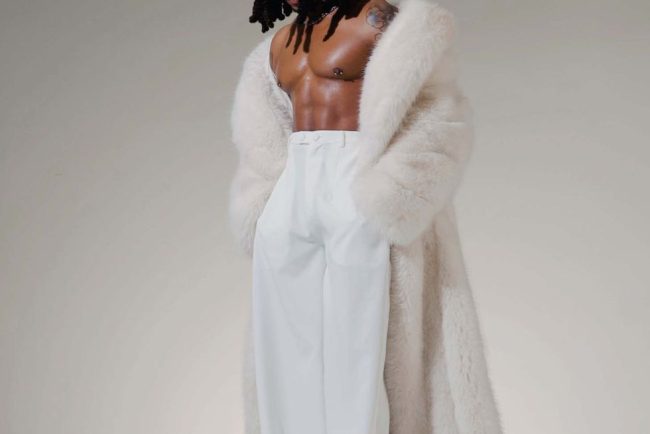
Billy The GOAT's 'Saturday Love' Video Stars Lola Gorgeous Gucci
Billy The GOAT is celebrating love in all forms with his latest release, “Saturday Love.” On it, the queer DC emcee samples Cherrelle and Alexander O’Neal’s 1985 hit of the same name, which makes for a nostalgic foundation for him to freestyle on. “If loving […]
Music
Billy The GOAT is celebrating love in all forms with his latest release, “Saturday Love.” On it, the queer DC emcee samples Cherrelle and Alexander O’Neal’s 1985 hit of the same name, which makes for a nostalgic foundation for him to freestyle on. “If loving you is wrong, then I don’t want to be right,” Billy raps, gliding effortlessly over a Young Yanabu-produced beat which he says recreates “that same feel good vibe” of the original decades later.
The accompanying music video continues Billy’s mission of amplifying LGBTQ+ voices and features Legendary Overall Mother Lola Gorgeous Gucci as its leading lady. “The trans community has always been at the forefront of culture, beauty and movement, and they deserve their flowers,” Billy says, celebrating Lola’s Legendary status in the ballroom community and beyond. “It was an honor to have her bring this vision to life.”
Watch Billy The GOAT’s “Saturday Love” video, below, and read what he’s planning next.
How did you decide to sample 1985’s “Saturday Love” for this? What’s the personal significance?
I was in the recording studio checking out beats, not looking for anything specific, and I found this instrumental titled “Saturday Love” produced by Young Yanabu. The sample immediately resonated with me. I’ve always loved the original song by Cherrelle and Alexander O’Neal. It was one of those songs my dad played around the house when I was growing up. For me, the sample is nostalgic and takes me back to my childhood. Listening to the instrumental made me feel good and before I knew it, the lyrics just started to come to me. I laid them down as a freestyle. I was just vibing and it was really organic. After hearing it back, I looked at my engineer and we were both like, “I think we have something here.” I ultimately want to recreate that same feel good vibe 40 years later.
How did you get connected to Lola Gorgeous Gucci?
I’ll never forget when I attended the Lanvin Ball a few years ago. The category was Face and I had never seen or heard of Lola before. When she stepped onto that ballroom floor in that all-black ensemble and that nasty short black haircut, my jaw dropped. She was so undeniably beautiful. There was a moment after one of her battles where the competitor was bitter, and attempted to shade her and Lola retaliated by giving the most sickening death stare you’ve ever seen. It was in that moment I knew someday I had to connect with this woman in some way.
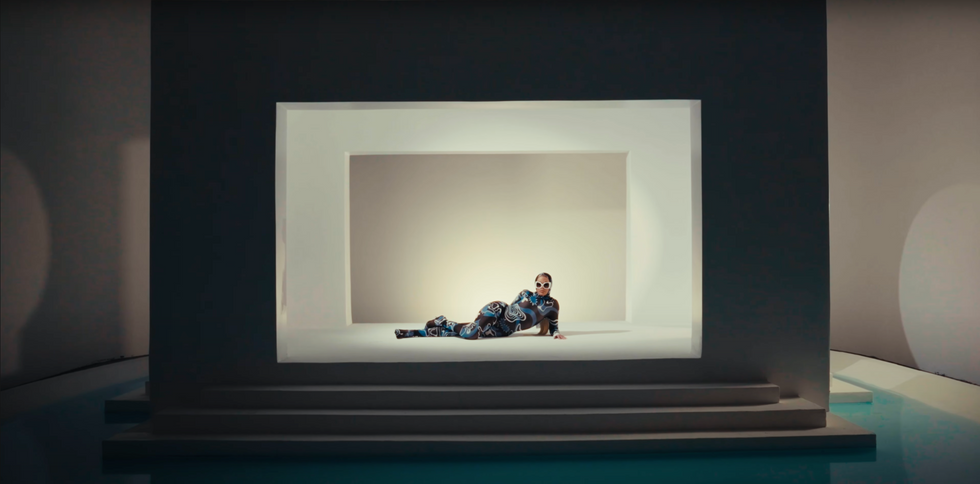
Why was it important for you to include her in the video?
As I was thinking about my vision for this music video, I wanted it to look like a COVERGIRL beauty ad campaign. Representation is key to me as a gay rapper. It was a no-brainer that if I was going to have a video vixen she had to be trans. In the beginning phases, my team and I had a few names of a few different girls from the scene like Kamiyah (Kitten Gunz), Gia Love, Barbie Balenciaga, Asia Allure and Sade Alpha Omega – all girls I find to be absolutely beautiful. I was going to go with one of these girls and then it dawned on me, Wait, Lola… You forgot about Lola! In my head I saw someone who has confidence, beauty, radiance, sexiness and mystique. I saw someone that has deep roots in the community and who could really sell what I was trying to bring across in this visual. It could only be her. Not only was she excited to do it, but she said that it was always a dream of hers to be the star of a music video.
What is the larger message about love that this release says?
We all are deserving of it. No matter who you are, no matter who you love and no matter what day of the week. Music is a universal love language that we’re all fluent in. Love is something that every single one of us deserves to have and give in whatever way we see fit.

Why is it important to uplift trans women in this way?
In today’s political climate we have a president and administration that has blatantly made it their mission to target the LGBTQ+ community – specifically the transgender community – by rolling back our civil rights. Transgender women are being moved into men’s prisons. They’re opening the door to ban transgender service members. I know a lot of trans women that are living day-to-day in fear for their lives and for their futures.
It’s my responsibility as an artist to provide a space for our transgender brothers and sisters to be celebrated. I will do that every opportunity I get. “Saturday Love” is my way of letting the world know transgender people aren’t going anywhere. It’s my salute to the trans community to let them know I see you and I’m going to fight for you. Trans is beautiful.
How is this release a taste of what’s to come in 2025?
I’m elated about 2025. I’ll be performing and putting out more music over the next few months. I promise to continue to give you nothing but good fucking music as my authentic self. Queer artists are on the brink of something groundbreaking. I feel a shift coming in the music industry. My team and I have been putting in an immense amount of effort to ensure we deliver quality work that our community can be proud of, and I am counting down to the release of my EP on May 23.
‘Saturday Love’ is my way of letting the world know transgender people aren’t going anywhere.
Photos courtesy of Billy The GOAT
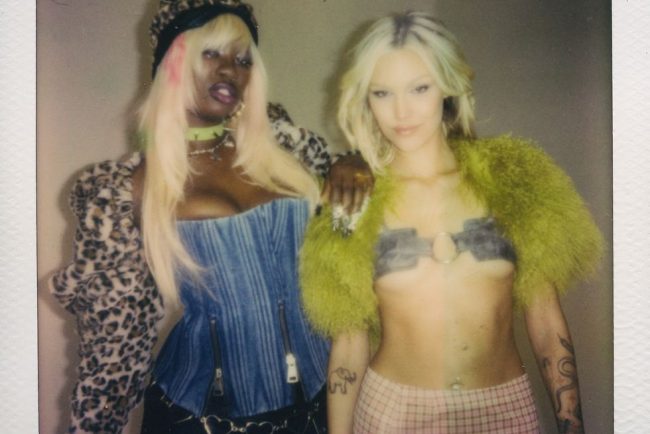
Grace VanderWaal and Aliyah's Interlude Share 'Babydoll'
Grace VanderWaal is all grown up. The 21-year-old singer-songwriter and actress, who first captured our hearts as a ukulele-wielding prodigy on America’s Got Talent, is embracing her bratty, carefree side with her latest single, “Babydoll” — a sassy, unapologetic pop track featuring internet It Girl, […]
Music
Grace VanderWaal is all grown up. The 21-year-old singer-songwriter and actress, who first captured our hearts as a ukulele-wielding prodigy on America’s Got Talent, is embracing her bratty, carefree side with her latest single, “Babydoll” — a sassy, unapologetic pop track featuring internet It Girl, Aliyah’s Interlude. It’s a playful, high-energy follow-up to her last release, the introspective “What’s Left of Me,” and a sign that VanderWaal is ready to let it all loose in this new chapter of her career.
“‘Babydoll’ is all about being in your diva era, and for me, it’s my new pop anthem!” she tells PAPER. Co-written with Tiffany Stringer, the track emerged from a studio conversation about her alter egos, with VanderWaal embracing the persona of a playful, high-maintenance diva who refuses to hear the word “no.”
The energy extends into its accompanying music video, directed by Sophie Hur, where VanderWaal and Aliyah exude effortless cool in a loose, spontaneous it-girl shoot. “Originally, we were supposed to shoot this in LA with a completely different treatment,” she says. “After some development, it made sense to just get together with Aliyah in New York and shoot this with the intention of feeling a little bit more carefree.”
The release, and her new attitude, is the beginning of an exciting new chapter. Over the years, VanderWaal has grown into a fearless, self-assured artist, shedding the wide-eyed innocence of her early music and stepping into a sound that feels entirely her own. In doing so, she’s solidified herself as a voice for Gen Z, effortlessly blending vulnerability with rebellion in a way that resonates with fans who have grown up alongside her.
This return to music follows a whirlwind year for VanderWaal, from starring in Francis Ford Coppola’s film Megalopolis to performing at the 2024 Kennedy Center Honors. With her long-awaited second album — which she calls her “real debut” — just around the corner, she’s embracing a sense of creative independence and reinvention.
We caught up with VanderWaal to talk about the making of “Babydoll,” having Aliyah’s Interlude as her first-ever feature, and a possible upcoming tour.




What was the inspiration behind “Babydoll”?
“Babydoll” is all about being in your diva era, and for me is my new pop anthem.
How did you translate the song into the video?
Originally we were supposed to shoot this in LA with a completely different treatment. After some development, it made sense to just get together with Aliyah in New York and shoot this with the intention of feeling a little bit more carefree.
What are you working on and excited to share with fans next?
My second album, which feels to me like my debut album, is just around the corner and I cannot wait to share everything that my team and I have been working on for the past year.
Any additional news or highlights you’d like to share with PAPER readers?
Stay tuned, much more to come. Maybe see everyone on tour later this year? Who knows?





Photography: Ally Chen
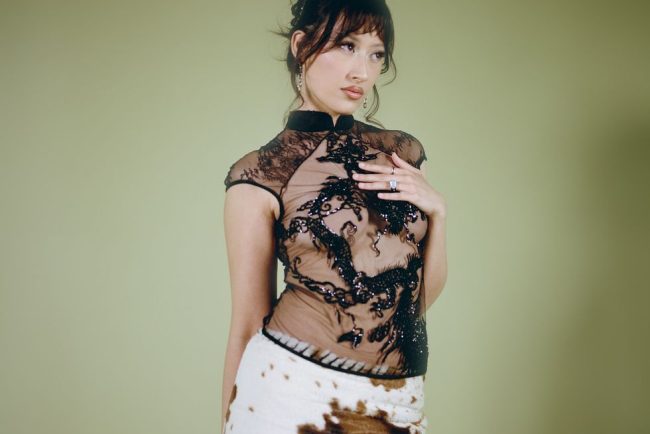
Alex Porat Takes Down a Situationship With 'Face Like Yours'
Alex Porat is taking down all previous lovers who’ve wasted her time. The Toronto-based singer shares today “Face Like Yours,” the cathartic lead single off her forthcoming crushed! EP, due out June 27. “You’re so original for leaving me on read,” she sings on the […]
Music
Alex Porat is taking down all previous lovers who’ve wasted her time. The Toronto-based singer shares today “Face Like Yours,” the cathartic lead single off her forthcoming crushed! EP, due out June 27. “You’re so original for leaving me on read,” she sings on the guitar-pop track, at once tongue-in-cheek and scathing. “Know you peaked in high school, but it still goes to your head.”
“Face Like Yours” is a “funny take on a bad situationship,” Porat tells PAPER. “It’s about realizing that the energy you’re putting into someone isn’t being met and that they can’t, or don’t care to, do better.”
In the Justin Alexis-directed music video, Porat is shown having dinner opposite Francesco Manella, who appears as her handsome boyfriend. “What a waste, a face like yours,” she sings, as he smirks and flexes in her direction, lacking any self-awareness. “What a shame, you are nothing more than a night to remember, your hand-me-down sweater/ Your future is dry as a desert.”
“I didn’t want to write a sad song for people to cry to because the type of person this is about definitely isn’t worth crying over,” Porat continues. “Instead it’s an upbeat and fun pop track that people can blast, dance to and realize that they deserve way better. If someone can relate to this they deserve financial compensation.”
As the first taste of what’s to come this summer, “Face Like Yours” introduces crushed! as an EP about the rush of diving into someone new — with its many highs and lows. “This EP was inspired by the feelings of meeting my now boyfriend,” she says. “It’s the type of music someone would dance around their room to when they get a text from the person they like.”

Photography: Mariah Hamilton


